

Key West remains divided over cruise ships. Did the city break its own rule on how many can come?
In Key West, where being laid-back is a lifestyle, just the mention of cruise ships can stir heated debates.
Locals and business owners have long been divided over the cruise industry's impact on the island's already fragile tropical environment and the tourism-reliant economy.
So when the Key West City Commission last year unanimously passed a resolution pledging to allow only one ship per day in the harbor, tensions cooled.
The compromise put an end to the waterfront protests by the homegrown activist group Safer Cleaner Ships and hundreds of people crowding City Hall during commission meetings to argue over cruise ships.
However, there's only so much the city can control when it comes to cruise ships. Key West is home to Pier B, a privately managed business free to book cruise ships without government control.
Nonetheless, city commissioners told voters they could carry out the resolution because they own the city's other pier, at Mallory Square.
But in February — twice — the Mallory Square pier had a cruise ship in port at the same time as the privately-managed Pier B right next door.
On Feb. 20, the Ritz-Carlton's Evrima docked at Mallory while at the same time the larger Royal Caribbean's Radiance of the Seas was at Pier B, according to social media posts and the cruise ship schedule managed by the local company Caribe Nautical .
A week later, the same thing happened again, with two ships lined up at the two piers at the same time.
Safer Cleaner Ships blasted the city, saying staff violated the city commission's resolution — which they already consider a compromise on the issue. The group had succeeded in passing three ballot measures in 2020 that limited the size and capacity of cruise ships allowed to dock.
"It stinks," said Arlo Haskell, one of its founders. "It just seems like such a clear violation."
"It's been very upsetting for the people who follow this issue – the clear majority of voters in Key West who want cruise ship limits," he added.
City Manager Patti McLauchlin confirmed two ships had docked on the same day twice in February. But they were scheduled before the single ship at a time policy took effect, she said.
The one-ship policy is under attack. Who is responsible? See our latest newsletter here and demand answers from your @City_of_KeyWest Commissioners. 👇 https://t.co/of0em8pVMO pic.twitter.com/bVddhpU0X8 — Safer, Cleaner Ships (@ProtectKeyWest) February 23, 2023
"We will continue to abide by the resolution and only allow one ship in," McLauchlin told WLRN.
This week, McLauchlin said she canceled two scheduled cruise ships that were due to arrive at the city's pier in December on days Pier B is also set to receive a vessel. That includes an overnight cruise on Christmas Day — which Haskell pointed out would have blocked the view of Key West's famous sunset at Mallory Square during the daily Sunset Celebration festival.
She also told WLRN that the city "are cancelling" a ship due to come in on March 30, a day when, again, Pier B is set to have an arrival.

The city can only control Mallory Square's cruise ship schedule, she added. Pier B is privately managed by the Walsh family, which owns the property next-door to Mallory, along with the high-end Opal Key Marina and Resort that fronts the same waterfront view.
When approached by WLRN, a Pier B representative said their attorney Bart Smith could not be reached for comment.
In an email blast to supporters Haskell, of Safer Cleaner Ships, had also questioned if lobbyists representing businesses with a financial stake in cruise ship arrivals played a role in the double occupancy at Key West harbor earlier this year.
"I have not been lobbied by anybody," McLauchlin responded. "It was a commitment I held to that was approved before this."

Key West votes to ban large cruise ships from docking, limit cruise visitors to 1,500 per day
Big cruise ships will no longer welcome at the southernmost point in the continental U.S.
On Tuesday, voters in Key West passed three ballot initiatives aimed at limiting the impact of visiting cruise ships on everyday island life.
According to the Monroe County Board of Elections , roughly 63% of residents voted to ban ships with the capacity to carry more than 1,300 passengers from docking in Key West.
Another 61% voted to limit the total number of passengers that can disembark from ships to 1,500 per day.
And 81% supported a measure that would give priority for those 1,500 slots to the cruise lines with the best environmental and health records. According to the Key West Committee for Safer, Cleaner Ships , which petitioned to get the initiatives on the ballot, each line's environmental record will be determined by the number of environmental violations, penalties and fines it receives. When considering their health records, Key West will look at each cruise line's inspection scores and violations from the U.S. Centers for Disease Control and Prevention's Vessel Sanitation Program
Key West City Clerk Cheri Smith told USA TODAY the measures took effect immediately.
Arlo Haskell, the committee's treasurer, is relishing the group's victory.
"The people of Key West are thrilled to finally have some common-sense restrictions in place after 30 years of unregulated cruising that has damaged our environment, hampered economic growth, and threatened public health," he said.
Norwegian , Carnival and Disney Cruise Line all made port calls to Key West prior to the CDC's ban on cruising in U.S. waters last March. Most – if not all – of the ships that regularly visited, including Norwegian Sky , Carnival Conquest and Disney Magic , would no longer be able to because of the new capacity limit.
Michael Hopper, owner of the Southernmost House Hotel and the Seaside Café , was not one of the voters in favor of the initiatives aiming to limit cruise activity in the area.
"It will severely damage the economy at a time when the economy is extremely fragile," Hopper told USA TODAY. "Most importantly, it will change the very nature of the community. Without the cruise ship bans, we were able to entertain visitors and tourists of all economic ranges."
Key West has attracted a diverse group of tourists over the years, but the ban on larger ships will change that, he argued.
Although smaller ships will be allowed in, Hopper said their passengers are generally wealthier people who can afford the pricier fares. He sees that as a negative that will permanently damage his town.
"This community advertises itself as one human family," he said. "We do and we should welcome tourists of all race, all color and all income. When you ban the more economically-available cruise ships from coming in in an effort to create an 'upscale community,' you’re doing everything to defeat our goal of one human family."
Haskell pushed back against Hopper's argument, saying, "It should go without saying, but a citywide mandate for common-sense restrictions on cruise ships has nothing to do with race. It is about protecting public health, the environment and our quality of life. It is about ensuring that our tourist economy serves future generations."
And while 81% of voters supported the measure to prioritize environmentally friendly ships, Hopper said the initiatives combined will still block some of the more environmentally friendly lines from coming to visit.
"(It) bans Disney from coming into Key West by their cruise ships even though Disney has an enviable sterling environmental record," he said. "It bans (Richard) Branson’s Virgin Voyages, which are state-of-the-art, environmentally sound cruise ships from coming into Key West (due to their size)."
In its 2020 report card, Friends of the Earth gave Disney a B-, the highest grade of any line. Virgin Voyages received a D. The group based its grades on criteria such as air pollution reduction, water quality compliance and sewage treatment.
“Large cruise ships degrade Key West in at least three ways," Shirley Freeman, former Mayor of Monroe County, said in a testimonial supporting the measures . She said they result in large crowds and attract "the same shops in every port, taking away from the uniqueness of Key West. They also muddy the waters."
"Before big cruise ships, the water here was crystal clear," she said. "Now since COVID-19 has stopped all cruise ships temporarily, the water is much clearer.”
Cruise Lines International Association (CLIA), the industry's largest trade group, hopes to retain Key West as a travel partner.
"The cruise industry places incredible importance on being a strong partner in the communities where we visit, and we believe open dialogue and communication is a critical part of that," Bari Golin-Blaugrund, vice president of strategic communications for CLIA, told USA TODAY. "We hope to have that opportunity in Key West."
Haskell is open to continuing that dialogue, telling USA TODAY: "We look forward to working with them to make Key West the premier small ship destination in the Caribbean.
"As Key West turns its focus to small ships that can happily coexist with the overnight visitors that power our tourist economy, it will foster a more supportive business environment for our diverse, locally-owned hotels, restaurants and retail businesses, and it will only enhance our appeal as a destination to travelers from all over the world," he said.
However, Key West isn't likely to see any cruise-ship visitors until at least 2021, due to an industry-wide decision not to sail in U.S. waters the rest of this year .
- Search Please fill out this field.
- Manage Your Subscription
- Give a Gift Subscription
- Sweepstakes
Key West Votes to Keep Large Cruise Ships Out
Residents voted for three referendums, including one prohibiting cruise ships carrying more than 1,300 passengers from docking in Key West.
Meena Thiruvengadam is a lifelong traveler and veteran journalist who has visited more than 50 countries across six continents. Her writing has appeared in The Wall Street Journal , Departures , TripSavvy , and other publications.
:max_bytes(150000):strip_icc():format(webp)/Meena-Thiruvengadam-0953f29450f840a786278802ac6a8162.jpeg)
Residents of Key West in the Florida Keys , have voted to impose new restrictions on cruise ships looking to pull into the four-square-mile island that's home to the southernmost point in the U.S.
Residents voted for three separate referendums: one to prohibit cruise ships carrying more than 1,300 passengers from docking in Key West, another to limit the total number of visitors to Key West from cruise ships to 1,500 per day, and a third that would prioritize dock access for cruise lines with the best health and environmental records.
About 81% of Key West residents voted in favor of prioritizing cruise lines with stronger health and environmental records. And more than 60% of residents voted for each of the other two measures to limit cruise activity.
"This is a historic opportunity for Key West to have this voice in how we handle the cruise ship traffic here in Key West," Evan Haskell, an organizer with The Key West Committee for Safer, Cleaner Ships, told the Miami Herald .
The committee gathered the signatures necessary to get the questions on to Tuesday's ballot and cited the role of cruise ships in spreading coronavirus as one of its concerns.
U.S. cruise ships have been mostly docked for months to help curb the spread of COVID-19 around the world.
Key West has long been a popular cruise destination, drawing more than one million passengers in 2019 alone — about half of the total number of tourists who visited that year.
The new restrictions wouldn't completely eliminate cruise traffic to the island. Major cruise lines such as Royal Caribbean, Carnival, Norwegian, and Disney Cruise Line don't operate ships small enough to pull into Key West, under the new regulations. But boutique cruise operators like Oceania Cruises, Crystal Cruises, and Germany's Hapag-Lloyd Cruises wouldn't be affected as their ships carry fewer than 1,300 passengers each.
Meena Thiruvengadam is a Travel + Leisure contributor who has visited 50 countries on six continents and 47 U.S. states. She loves historic plaques, wandering new streets, and walking on beaches. Find her on Twitter and Instagram .
Key West Votes to Ban Large Cruise Ships From Port
The people have spoken—and it's not good news for big cruise companies.
:max_bytes(150000):strip_icc():format(webp)/KatherineAlexBeaven-015fae1ab95a490fb3d682eea49357c6.jpg)
Whenever cruises get the green light to restart passenger sailings, don’t expect the big ships to have Key West on the itinerary.
Sailings on ships with a capacity of more than 250 passengers have been suspended in U.S. waters since March, finally giving the good people of Key West a glimpse at what a life without tens of thousands of cruising daytrippers looks and feels like daily. Well, the people have spoken—well, voted, rather—and they want to keep out big ships and large cruise crowds.
On Nov. 3, 2020, Key West residents found three charter amendments on cruise ship regulations on their ballots. All three amendments were proposed by the Key West Committee for Safer Cleaner Ships . All three would be effective immediately. One of the amendments will limit the number of cruise ship passengers who can disembark to no more than 1,500 per day; another prohibits cruise ships with more than 1,300 passengers from docking in Key West; and the last awards port priority to ships with the best environmental and health records. All three were voted in.
However, while the amendment favoring ships with high environmental and health records got over 80 percent of the vote, the charter amendments restricting cruise ship capacity and disembarkation numbers passed with just a small lead of 60.68 percent of the vote for the former and 63.32 percent for the latter, leaving the outcome a contentious topic among Conchs. Whether for better or worse, when it comes to the island's impact overall, there is no doubt that these referendums will have huge effects on the town’s tourism.
“We believe cruise ships bring at least $90 million into the Key West economy, along with hundreds of jobs,” Scott Atwell, CEO of the Greater Key West Chamber of Commerce, told Trip Savvy. For him, it’s a simple numbers game: fewer tourists means less tourist revenue—and big hits to the budget.
“Their absence also impacts the city where millions of dollars in disembarkation fees offset the annual budget,” he added. “While we appreciate the sentiment behind the effort, there are better ways to mitigate concerns without this draconian idea that will only hurt the island.” Atwell also said the city would likely be forced to defend this vote in court as it impacts a privately-held pier.
According to an August 2020 report put together by Cruise Lines International Association (CLIA) in response to the referendums, tourists from cruise ships spend 50 percent more when visiting Key West than overnight visitors and 75 percent more than other day visitors. They also argued that roughly 1 in 20 jobs in Key West are related to the cruise industry and that restrictions on cruise ship activity will cause an estimated 4.5 percent rise in unemployment.
However, it’s worth noting that the cruise industry has been largely unregulated in Key West for decades—and the people of the Conch Republic have never been the type of people to shy when they feel they are being bullied. While the new charter amendments will restrict large cruise ship companies (at least with their current mega-ships) from docking in Key West, smaller ships are still welcome, opening up opportunities for more boutique cruise ship sailings to throw down their anchor.
The 14 Best Backpack Brands of 2024
U.S. Cruises Could Begin as Early as November—Here's How
After Months of Silence, CDC Finally Releases Next Steps For Return Of U.S. Cruises
What to Know About Sunscreen Bans
What to Expect If You’re Going on a Cruise This Winter
Florida Is Suing the U.S. Government Over Cruise Restrictions
How the U.S. Presidential Election Could Change Travel
Cubas Capital City of Havana
Cruises Might Not Return to These Ports After COVID-19
Bike Travel Is Surging Around the World. Will It Last?
Is Thailand Ready to Reopen Its Borders to Tourists?
Cruising Is Back! CDC Will Allow Big-Ship Cruises to Set Sail in June
Cruises Are Cleared to Begin a Phased Restart in U.S. Waters This November
20 Solo Trips in 2020: I Traveled Solo During COVID-19
13 New Ocean Cruise Ships in 2018
The Best Alaska Cruises
On Election Day, Key West voted to ban large cruise ships

Nov 10, 2020 • 3 min read
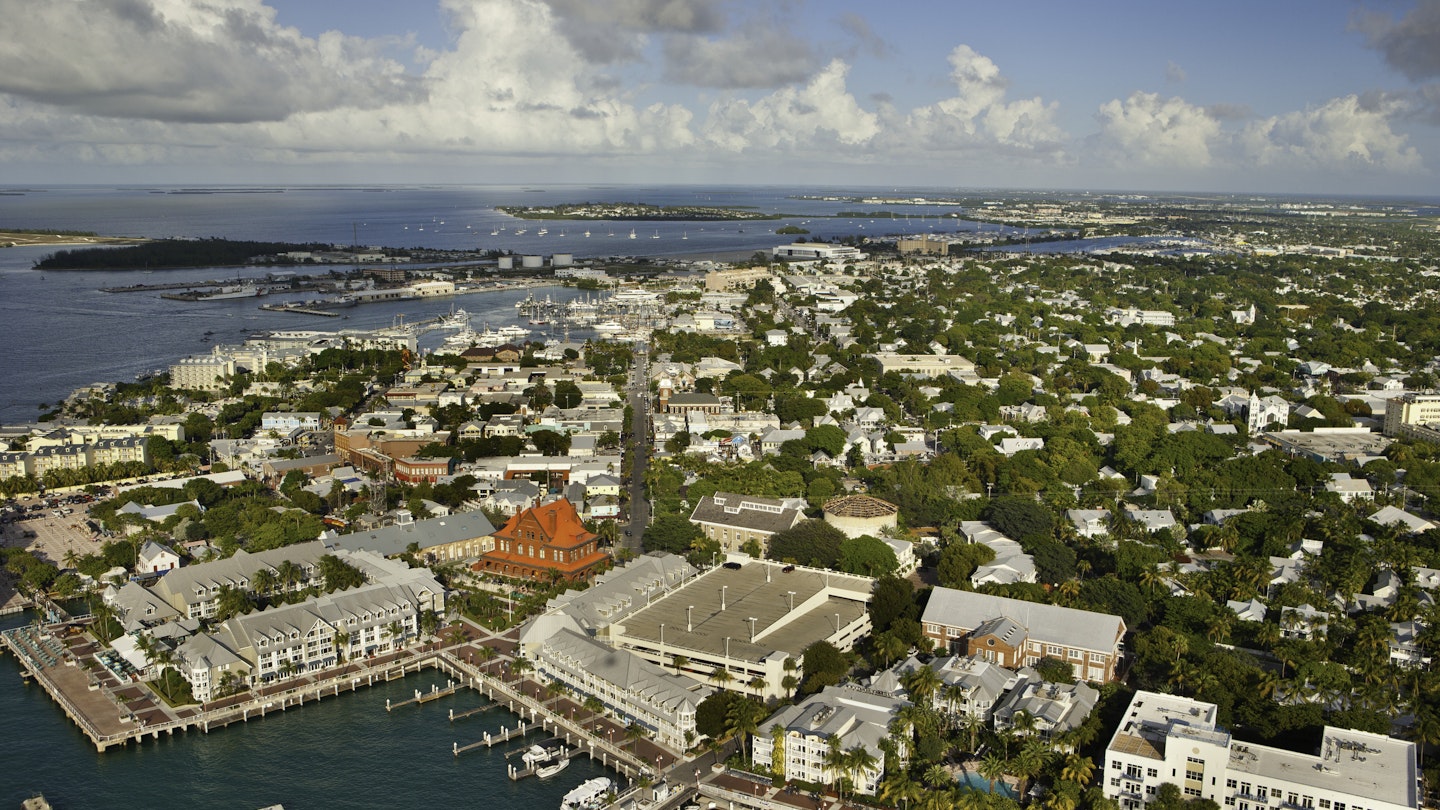
Key West, Florida has voted to ban large cruise ships ©Danny Lehman/Getty Images
On Election Day, residents of Key West voted to ban large cruise ships from docking in the city. It's a move that will have a ripple effect on the environment, and the future of Caribbean cruises once the industry is up and running again.
Last Tuesday, Key West voters approved three referenda that will ban most cruise ships by major lines from visiting the city. The first referendum, which won roughly 63% votes according to the Monroe County Board of Elections , prohibits cruise ships with more than 1300 passengers from docking in the Keys. The second, which won 61% votes, places a 1500 cap on daily cruise ship visitors. The third, which received the largest support at 81%, will give docking priority to cruise lines with the best environmental and health records

The bans are in response to the impact large ships are having on the infrastructure and delicate ecosystem of the Florida Keys . When COVID struck and cruise ships were banned, it gave the environment time to recover, and it gave the Keys time to think. Locals formed the Key West Committee for Safer Cleaner Ships . A grassroots initiative that set out proposals for the ballot, and won support from locals, officials and business owners. At the heart of the initiative, is the desire to "balance the limited economic benefits of cruise ships against the larger public health, environmental, and economic interests of Key West citizens."
According to The Impacts of the Cruise Ship Industry on the Quality of Life in Key West report, or the Murray Report, traffic and pollutants from the 390 cruise ships that visit the Keys annually cause "chronic water-quality issues" and kill coral and sea creatures including lobster and conch, threatening the local charter fishing industry too — an industry that supports 8000 jobs in the area . The report lays out the limited economic benefit large cruise ships have on the Keys, arguing that while cruise ship passengers make up 50% of all visitors in Key West, they only contribute to 8% of all visitor spending; spending an average of $32 per passengers, while other tourists spend an average of $550.
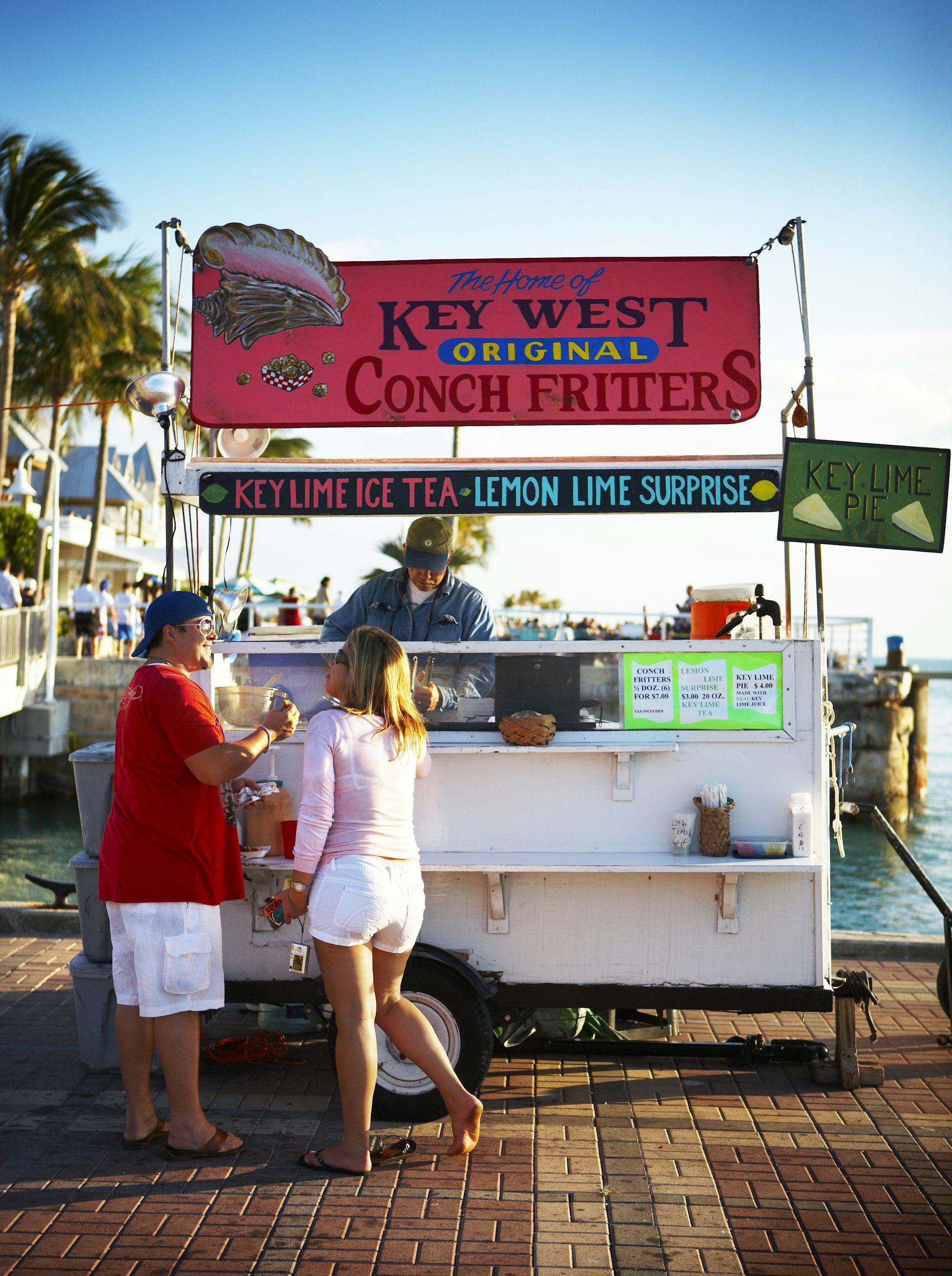
The residents of Key West don't want an outright ban on cruises. That's why 81% of voters support the measure to prioritize small cruise ships that are safer and cleaner. Ships that tend to attract higher-spending customers, have less of an impact on the environment and will bring fewer crowds to the Keys — a measure that is especially important to locals in the time of COVID.
Speaking to USA Today Arlo Haskell, the committee's treasurer, said: "the people of Key West are thrilled to finally have some common-sense restrictions in place after 30 years of unregulated cruising that has damaged our environment, hampered economic growth, and threatened public health."
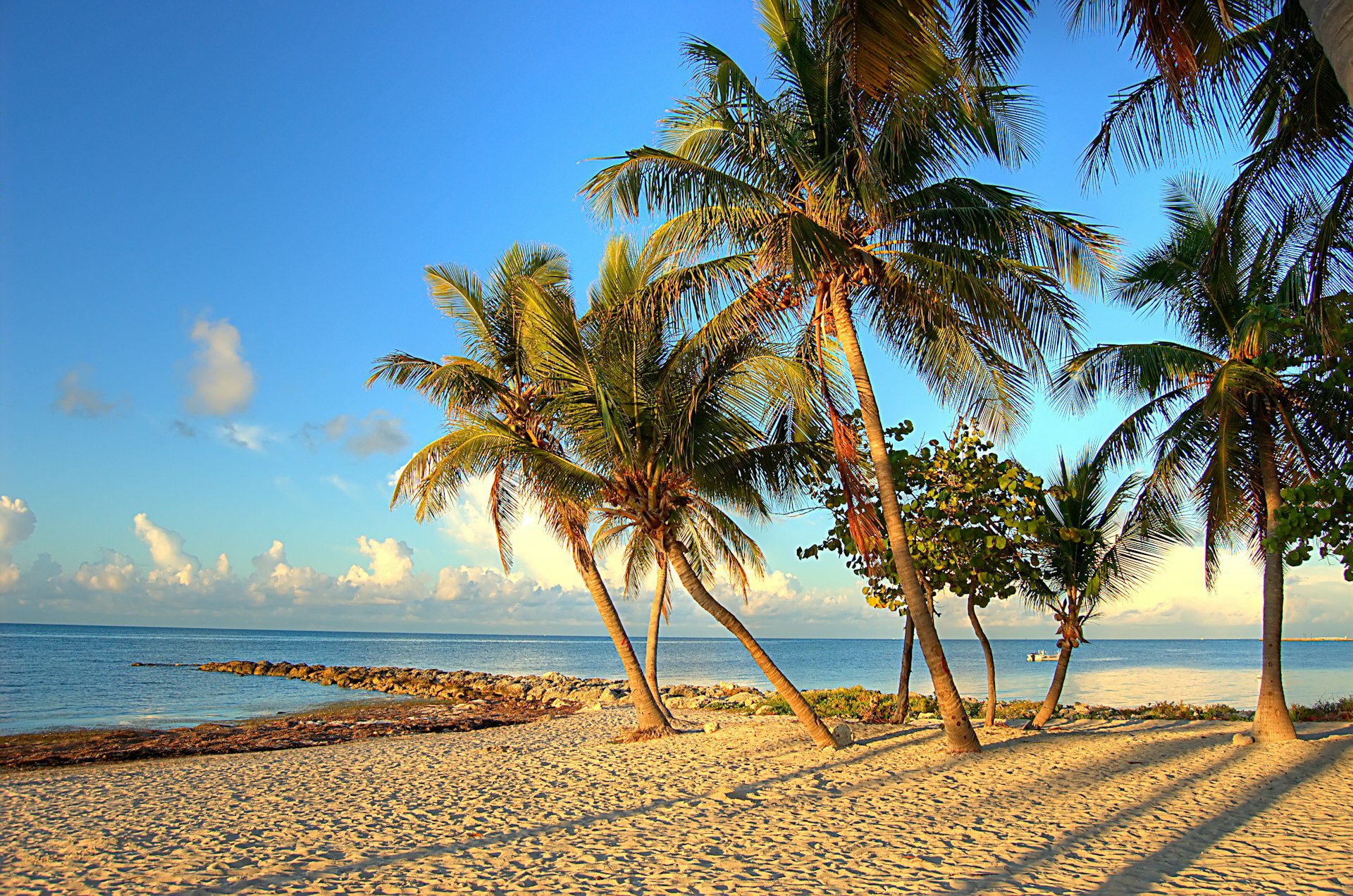
What does this mean for the future of Caribbean cruises? The Miami Herald reports that 40 of the 50 vessels that docked in Key West in 2019 will be prohibited from visiting again, that includes ships from Norwegian Cruise Line, Royal Caribbean, Disney Cruise Line and Carnival Cruise Line. Luxury cruise lines like Regent Seven Seas, Seabourn and Silversea currently meet the new criteria, which could effectively close Key West cruises off to budget spenders.
The newspaper reports that the measures could face legal challenges as cruise lines seek a compromise. Cruise Lines International Association told USA TODAY they hope to "open dialogue" with Key West and keep it as a "travel partner".
You might also like:
Venice might finally ban giant cruise ships from the historic city centre This is the first cruise ship to have its own COVID-19 testing lab The CDC has lifted its cruise ban - but don't expect to set sail just yet
Explore related stories
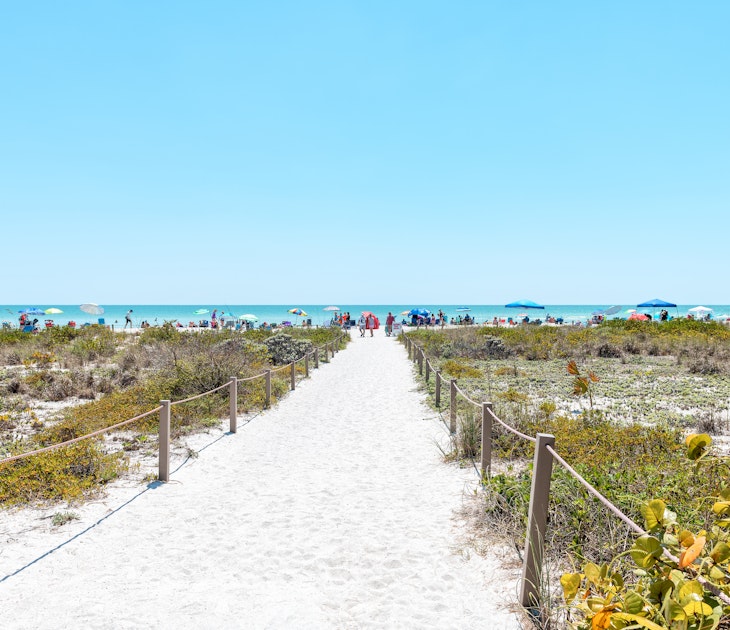
Apr 3, 2024 • 5 min read
Florida's best beach? That's a very tricky question. But don't worry, we can help. Here are our favorites.

Apr 3, 2024 • 6 min read

Mar 15, 2024 • 10 min read
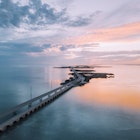
Feb 5, 2024 • 8 min read
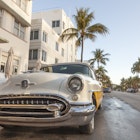
Aug 26, 2023 • 5 min read
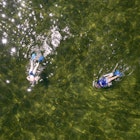
Aug 25, 2022 • 9 min read
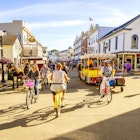
Jun 8, 2022 • 7 min read
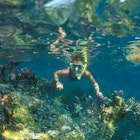
Jun 3, 2022 • 5 min read

May 18, 2022 • 5 min read
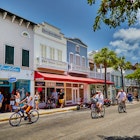
Apr 18, 2022 • 6 min read
Key West voters deliver a blow to cruise lines with big-ship ban

Is the era of big-ship cruising to Key West, Florida, coming to an end?
It's looking more likely after Tuesday's election.
Residents of the laid-back island town in the Straits of Florida on Tuesday voted to approve three referendums that will ban most cruise ships operated by major lines, such as Royal Caribbean and Carnival Cruise Line, from visiting.
For more cruise news, reviews and tips, sign up for TPG's new cruise newsletter.
One of the referendums prohibits cruise ships with more than 1,300 passengers from docking in Key West. That would affect even the smallest ships from Royal Caribbean, Carnival, Norwegian Cruise Line and Disney Cruise Line.
A second referendum limits the number of daily cruise ship visitors to 1,500.
A final referendum gives docking priority to cruise lines that have the best health and environmental records.
Related: The best credit cards for booking cruises
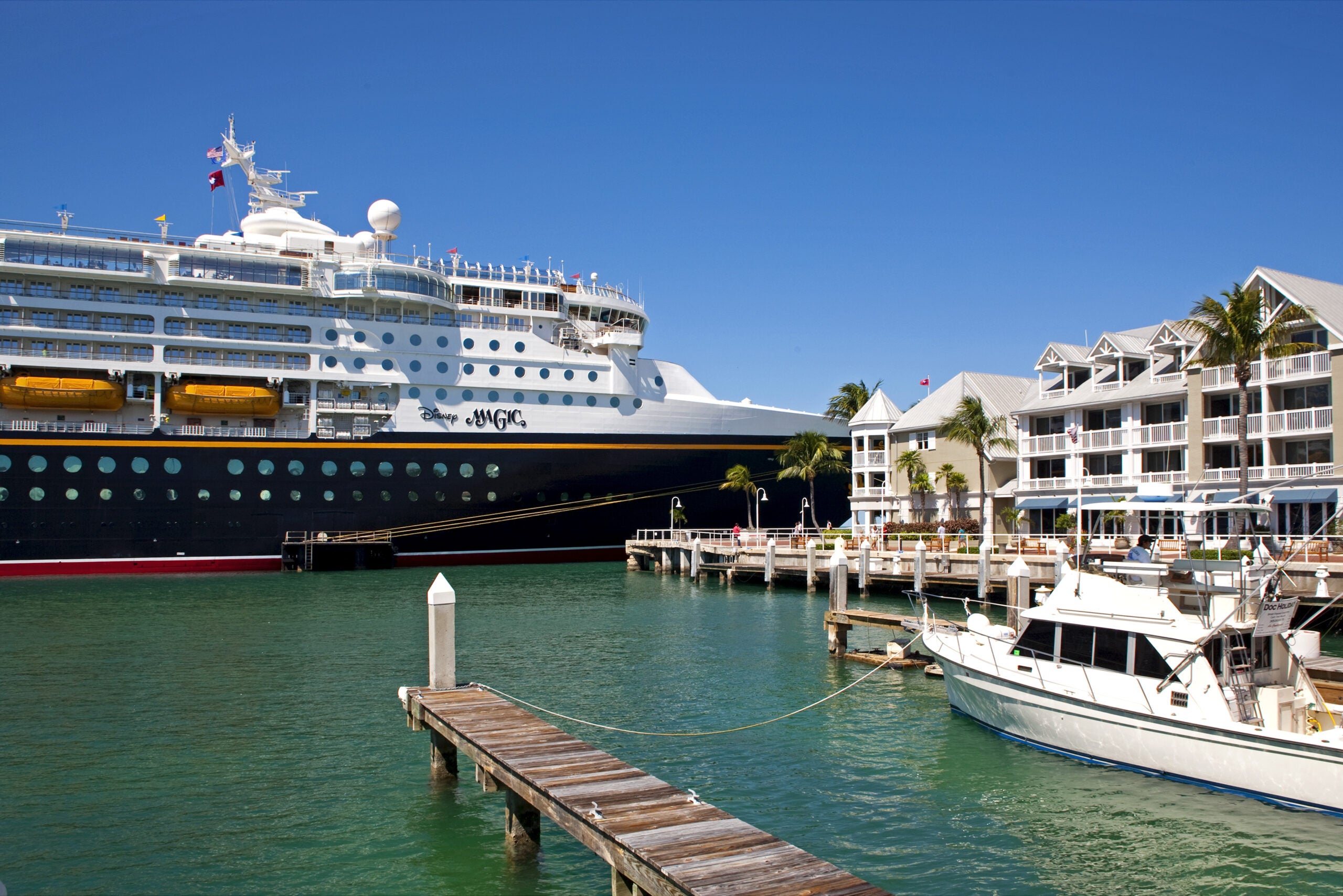
The referendums passed by wide margins ranging from 60% to 81%.
The referendums are binding but are expected to be challenged in court.
A spokesperson for the main trade group for the cruise industry, the Cruise Lines International Association, told The Points Guy on Wednesday that the association would not put out a statement about the vote.
Tapping into residents' worries about the COVID-19 outbreak, a political action committee that pushed for the referendums' passage, the Key West Committee for Safer Cleaner Ships, promoted them as a way to keep Key West safe and healthy. The group pointed to the many COVID-19 outbreaks on cruise ships earlier this year and noted that Key West only has one hospital and seven ICU beds for the entire community.
Unless overturned by the courts, the referendums could have a profound impact on cruising to Key West, which draws close to 1 million cruisers a year.
Related: 8 great hotels to book in Key West using points
Still, it won't bring cruising to Key West to an end. While the fleets of big lines such as Royal Caribbean lack vessels that are designed to carry fewer than 1,300 passengers, there are many small-ship cruise lines and luxury lines that operate ships under that threshold.
Upscale line Oceania Cruises, which sometimes sends ships to Key West, for instance, has six vessels that carry from 688 to 1,250 passengers.
Crystal Cruises, Seabourn, Silversea and Germany's Hapag-Lloyd Cruises are four more lines that sometimes send ships to Key West that would not be affected by the ban. They all operate vessels that carry fewer than 1,300 passengers.
The effect of the referendums, if they are allowed to stand, will be to transform Key West into a small-ship cruise destination that mostly caters to upscale vessels.
Planning a cruise? Start with these stories:
- The 5 most desirable cabin locations on any cruise ship
- The 8 worst cabin locations on any cruise ship
- A quick guide to the most popular cruise lines
- 21 tips and tricks that will make your cruise go smoothly
- 15 ways cruisers waste money
- 12 best cruises for people who never want to grow up
- What to pack for your first cruise
Switch language:

Must be this size to travel: Key West votes to limit big cruise ships
In a series of referendums, residents of Key West, Florida, US have voted to restrict the size and number of ships calling at the port. Intended to curb over-tourism, the move will have a wide-ranging effect on the industry and has already attracted attempts to overturn it. We look at what brought it about, and what the ban could mean for the future.
- Share on Linkedin
- Share on Facebook
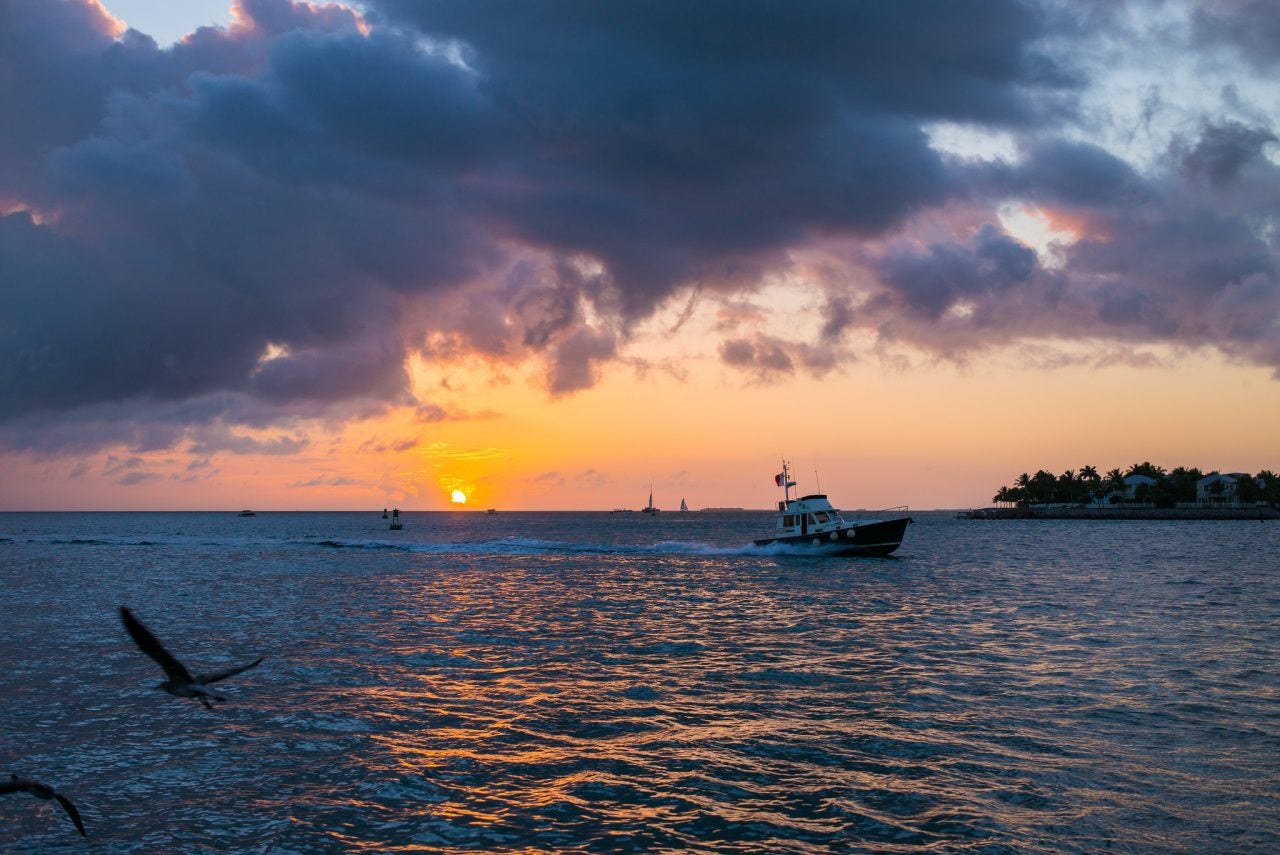
Key West is Florida’s southernmost point, making it an ideal stop for cruises. Before the pandemic hit, the island city was a regular destination for cruise lines such as Carnival and Royal Caribbean.
Last year, the city held three referendums on the same day to impose restrictions on cruise vessels docking at its ports. All three votes passed with clear majorities.
Go deeper with GlobalData

Environmental sustainability in Ship: Bio-fuel propulsion marine ve...
Innovation in ship: cargo securing arrangements, premium insights.
The gold standard of business intelligence.
Find out more
Related Company Profiles
Carnival corporation & plc.
The restriction campaign was led by a grassroots residents group called the Key West Committee for Safer, Cleaner Ships. Its treasurer, Arlo Haskell, is keen to point out that the group doesn’t want to stop cruises coming to Key West, it just wants limits.
“We haven’t banned cruise ships, and we don’t want to ban cruise ships,” says Haskell. “We’re really just putting into effect a fairly common sense size restriction that has to do with the depth of our channel and the depth of our port. Ships coming here, a lot of them will still be about 700ft-long. There are still large ships carrying over 1,000 people. They’re just not the really big ships that do damage.”
“We think there’s definitely a place in Key West, in our economy, for those smaller ships, which incidentally tend to have a higher spending passenger on board as well.”
However, the victory could be short-lived. Pending legislation at state level seeks to overturn the restrictions.
How well do you really know your competitors?
Access the most comprehensive Company Profiles on the market, powered by GlobalData. Save hours of research. Gain competitive edge.

Your download email will arrive shortly
Not ready to buy yet? Download a free sample
We are confident about the unique quality of our Company Profiles. However, we want you to make the most beneficial decision for your business, so we offer a free sample that you can download by submitting the below form
How the votes happened
When the rest of the US was going to the polls for the presidential election on 3 November 2020, Key West was also voting for limits on visiting cruise vessels as amendments to the city’s charter.
One ballot was to put a daily cap on cruise visitors at 1,500, which received 63% of the vote. The second was to ban the docking of cruise vessels carrying 1,300 or more passengers, and this passed with 61%.
Finally, the third question was to prioritise docking for cruise lines with the highest environmental and health standards. This question proved the most popular, gaining 81% of the vote. It is understood that these votes would effectively halve the annual number of cruise passengers visiting Key West.
Yet according to Haskell, the campaign and vote might never have happened if it wasn’t for Covid-19. He says when cruise traffic stopped completely during the pandemic, it gave residents a chance to notice the improvements in the marine environment. Many were keen to keep the changes, which led to a push for public votes.
“Within a relatively short period of time of there being no daily cruise ship traffic, people just began to notice the waters were clearer than they had been in 30 years, probably,” says Haskell, who grew up in Key West. “So this initiative – which really was born out of a public health concern – began to attract a lot of support from people who are concerned about the environment and concerned about the economic threat of continuing to damage the environment.”
Challenging the votes
Florida state senator Jim Boyd has put forward a bill that would effectively nullify the cruise limits in Key West, as well as take decision-making powers on port controls away from local authorities and hand it to the state and federal governments.
Senator Boyd’s proposed legislation states : “Notwithstanding any other law to the contrary, a local government may not restrict or regulate commerce in the seaports of this state, as listed in s.311.09, including, but not limited to, regulating or restricting a vessel’s type or size, source or type of cargo, or number, origin, or nationality of passengers. All such matters are expressly preempted to the state.”
Boyd’s bill also claims that restrictions in Key West will cause disruptions and wider economic damage across Florida.
For it to become law, Boyd’s bill will need to be passed by Florida’s house of representatives and senate, as well as being signed off by Republican state governor Ron DeSantis. Florida state’s legislative session is due to begin on 2 March.
The Cruise Line International Association (CLIA) has expressed its support for Boyd’s bill. It suggests that the bill will provide greater clarity and consistency for operations throughout the state.
“The cruise industry places great importance on being a strong partner in the communities we visit and strives to maximise the social and economic benefits of tourism for residents,” says a CLIA spokesperson.
“We believe open dialogue and communication is critical to achieving practical outcomes for all parties, and we still hope to have that opportunity in Key West. We support the legislation in concept because it confirms the principle that maritime commerce is subject to a uniform regulatory framework instead of a patchwork of conflicting restrictions in each municipality.”
Yet Haskell and his group are confident that they have the mandate and public support to uphold the cruise vessel limits.
“We’re working on building a coalition of people from around the state of Florida to educate people about what’s at stake with this bill and to hopefully fight against it and prevent it from becoming law,” adds Haskell. “I think once people in Florida realise that this affects them and affects their ability to manage what goes on in their own backyard, I’m optimistic that that that will succeed, and this bill will go away.”
The economic impact
Key West has a population of approximately 25,000 and received almost a million cruise visitors in 2019.
A report for CLIA published in August 2020 states that the new restrictions could cause permanent damage to the Key West economy. It estimates that cruise visitors contribute 7% of the total amount spent by tourists in Key West.
While this might appear a fairly low figure, it still amounts to $73m from the $1.2bn total revenue from tourism in the area, according to 2018 figures. In addition, cruise lines contribute a further $15m to the local economy through dockage fees.
The report highlights that while cruise visitors don’t stay in hotels or get flights – spending less money other tourists staying in the area – they actually spend more per hour than other visitors in specific sectors such as food and drink, recreation, and retail. In fact, 12% of all direct tourist spending in Key West is attributed to cruise visitors.
In addition, the report claims that the cruise industry supports 800 jobs in Key West, either directly or indirectly. And it states that Key West had a 2% unemployment rate in 2019, which could jump to 6.5% without the cruise industry. The report argues that the cruise industry will be important to Key West’s economic recovery from Covid-19.
As for cruise lines, it is not believed that the Key West limits will cause a major disruption once operations start up again.
“The ban is likely to have a small impact on cruise lines,” says GlobalData Travel and Tourism analyst Gus Gardner. “Given that larger operators tend to have small and large vessels in their fleets, itineraries can easily be adjusted, and ships changed to adapt to the operational restrictions now present at Key West. Some disruption could occur if a cruise ship is banned from docking at Key West and cannot find alternative space in other Florida ports.
“However, with PortMiami and Port Canaveral’s expansion plans, it is unlikely to be an issue. The ban imposed by Key West could be seen by many as simply ‘passing on’ the problem to other ports in the area, solving the issue for one but passing it onto another.”
Yet this is may only be the case if the restrictions remain in isolation.
Sign up for our daily news round-up!
Give your business an edge with our leading industry insights.
More Relevant
Fleet, crew and ship management software for the shipping industry.
The top 10 largest container ships in the world
Leading cybersecurity companies for the shipping industry, ship technology excellence awards 2024: mariapps marine solutions, sign up to the newsletter: in brief, your corporate email address, i would also like to subscribe to:.
Ship Technology In Brief
Ship Technology Global : Ship Technology Focus (monthly)
I consent to Verdict Media Limited collecting my details provided via this form in accordance with Privacy Policy
Thank you for subscribing
View all newsletters from across the GlobalData Media network.

Florida lawmakers change course and approve…
Share this:.
- Click to share on Facebook (Opens in new window)
- Click to share on X (Opens in new window)
Daily e-Edition
Evening e-Edition
- Election 2024
- Restaurants
- Real Estate
- Things To Do

News Politics
Florida lawmakers change course and approve bill that would overturn key west vote to restrict cruise ships.

A day after the issue appeared dead, Florida lawmakers late Wednesday approved a measure aimed at overturning a 2020 vote by Key West residents restricting cruise ship operations.
The Senate attached the Key West issue to a broad transportation bill ( SB 1194 ), which then passed the Senate and the House. It will now go to Gov. Ron DeSantis.
Key West voters in November approved limiting the size of ships and the number of passengers who can visit the city daily. The Senate passed a stand-alone bill ( SB 426 ) aimed at overturning the vote, but it was not brought up on the House floor and appeared Tuesday to have died.
But Sen. Ed Hooper, a Clearwater Republican who sponsored the transportation bill, and Sen. Jim Boyd, a Bradenton Repubican who sponsored the stand-alone measure, said the port amendment tacked on to the broader bill Wednesday was a compromise with the House.
“This is week nine (of the legislative session), and the Senate and the House sometimes reach compromise language, that this could be one of those that nobody likes and maybe that’s the right way to end it,” Hooper said.
But Rep. Jim Mooney, an Islamorada Republican who represents the Keys, argued against the amendment before the bill passed the House in a 75-40 vote. Mooney said cruise ships cause water turbidity that is bad for fishing and the ecosystem.
“It is my job to protect the ecosystem in the Florida Keys, and that’s what I am going to do,” he said.
The bill, which passed the Senate in a 21-17 vote, would apply to all 15 seaports in the state. It would prohibit local ballot initiatives that restrict maritime commerce involving vessel sizes, points of origin and even environmental and health records of the ship or company.
“If you have a port in your district, know that the people in your district, the voters, are not going to be able to have their voices heard on some of these issues,” Sen. Lori Berman, D-Delray Beach, said.
On Monday, the Miami Herald reported that 11 companies owned by Mark Walsh, who owns the company running the Pier B cruise ship dock behind Margaritaville Key West Resort and Marina, have donated nearly $1 million to the Friends of Ron DeSantis political committee backing the governor’s re-election effort.
Sen. Jason Pizzo, D-North Miami Beach, said the state should allow the Key West issue to be handled in court, where a property owner could argue the local vote involved a “taking” of business interests.
“They have a business, that they have a reliance, that they have a long-term contract on that business entity and that the city is doing something that amounts to taking of property and a reduction,” Pizzo said.
The Florida Ports Council, which opposed the earlier legislation, viewed the amendment as narrowing the preemption of local seaport operations, with lawmakers taking “steps to help ensure Florida’s seaports remain a major economic driver.”
“With thousands of cruise-related employees still sidelined, and cruise ships still unable to sail, it’s vital that local seaports are not further restricted in their ability to conduct business and create economic development opportunities,” council Vice President of Governmental Affairs Michael Rubin said in a prepared statement.
More in Politics

Health | Florida’s stricter ban on abortions could put more pressure on clinics elsewhere

National Politics | No Labels quits third-party bid against Biden, Trump

National Politics | Election vendor hits Texas counties with surcharge for software behind voter registration systems

National Politics | Former Trump officials are among the most vocal opponents of returning him to the White House
Key West Voters Approve Historic Ban on Large Cruise Ships
The environmental and economic damage of an unchecked cruise industry was too much for voters to bear.
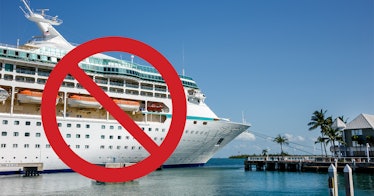
Three measures that would essentially ban large cruise ships from docking in Key West that were on the ballot were overwhelmingly approved on Election Day . One measure prohibits ships with more than 1,300 passengers from docking in the Keys, another measure caps daily cruise ship visitors at 1,500, and the third measure gives docking priority to cruise lines with the best environmental and health records.
With 63, 61, and 81 percent approval from voters, respectively, all three measures passed .
The Key West Committee for Safer Cleaner Ships, a grassroots group, was the driving force behind the measures. It sought to “balance the limited economic benefits of cruise ships against the larger public health, environmental, and economic interests of Key West citizens.”
Cruise ships are, somewhat surprisingly, a relatively minor part of Key West’s economy. Cruise passengers make up half of the visitors to the city, but they only contribute 8 percent of visitor spending, just $32 per person compared to the $550 spent by other tourists.
COVID-19 provides an additional incentive to limit visitors to the island, particularly those who aren’t dropping lots of cash. The history of cruise ships as vectors of the disease likely didn’t hurt the cause of those pushing for voters to approve the measures.
But while the economic downside of restricting cruise traffic would be minimal, the environmental upside will be substantial. Cruise traffic and pollutants annual cause “chronic water-quality issues” that kill sea creatures and harm the local charter fishing industry.
Cruise Lines International Association told USA Today that it “places incredible importance on being a strong partner in the communities where we visit, and we believe open dialogue and communication is a critical part of that.”
This highly calibrated corporate statement, as nice as it sounds, could be the prelude to legal action. Under the new rules, 40 of the 50 ships that docked in Key West last year would not be allowed, and no one expects the cruise industry to go down without a fight. But in good news, it appears the locals of Key West have spoken — and they chose to protect their environment and their economy in overwhelming scores. Nice!
This article was originally published on November 12, 2020
- The Buzz on Florida Politics
Legislators power through measure to overturn Key West vote
- Mary Ellen Klas Times/Herald Tallahassee Bureau
TALLAHASSEE — A day after citizens of Key West thought the legislation aimed at overturning their vote to limit cruise ship traffic appeared dead, Republican legislative leaders quickly reversed course and powered it past Democrats to send it to the governor.
Sen. Jim Boyd, the Bradenton Republican who sponsored the original bill that stalled earlier this week in the House, attached an amendment to an unrelated Senate transportation bill declaring that “any local ballot initiative or referendum may not restrict maritime commerce” at any one of Florida’s 15 deep-water ports.
The provision is retroactive, applying the ban to three referendums approved by 60% of Key West voters in November.
The bill was one of the most ambitious assaults on home rule this session and has commanded a remarkable amount of attention for a city that has a population of less than 25,000, an economy that has been booming, and one of the lowest unemployment rates in the state.
House Democrats suggested the super-charged interest of the Legislature’s Republicans is related to the amount of money the port generates for some powerful interests.
They spent spent 30 minutes late Wednesday, trying but failing to amend the bill, suggesting that it was intended to benefit a wealthy business owner who gave $995,000 to the political committee of Gov. Ron DeSantis, using 11 different companies to shield the contributions.
“It’s totally a conflict of interest, and this is absolutely the swamp, that we are up to our necks in,’' said Rep. Carlos Guillermo Smith, D-Orlando. “The fact that someone can make a $1 million contribution to the governor to ensure that he will sign this bill into law is a disgrace.”
Their efforts failed. The House voted 75-40 for the amended bill, following the 21-17 vote in the Senate, mostly along party lines.
The campaign contributions
Boyd’s district is home to hotel properties owned by Mark Walsh, the billionaire hotel operator and owner of the Key West pier, which gets most of the city’s cruise ship traffic. In the week before the legislative session began, Walsh gave $995,000 to the political committee of DeSantis.
Walsh has been fighting the referendum since last summer, when he filed a lawsuit to remove it from the ballot. According to a lease agreement with the state, Walsh’s company, Pier B Development, pays $24,572 a year to lease the pier. In an agreement with the city, the company keeps three-fourths of each $10 fee the cruise industry pays for each passenger who disembarks, and the city receives the rest — estimated at more than $4 million a year in profits.
Only one Republican stood up against the proposal, Rep. Jim Mooney, an Islamorada freshman, who countered all the arguments of the proponents and echoed the comments of the fisherman and residents who helped organize the initiative.
“I will tell you in undeniable terms that the city of Key West, the city of Marathon, the city of Key Colony Beach, the city of Islamorada, Monroe County, the National Marine Sanctuary and all the other scientific communities within the Florida Keys National Marine Sanctuary boundaries are opposed to this bill,’' he said.
He said that “water quality is our lifeline there,” and when the cruise ships arrive they stir up the water, hurting fishing and damaging the reefs. “When the National Marine Sanctuary says that it’s hurting our reefs, you really have to listen to that.”
But Rep. Spencer Roach, R-North Fort Myers, the House sponsor of the original bill, defended the amendment and repeated his claim that the referendum was backed by “a cabal of wealthy landowners in Key West that don’t want what they consider cruise ship riff-raff walking down their pier.”
That’s a point of view rejected by the Key West mayor, fishermen and several business owners who testified before legislative committees. They said the goal of the initiative was not to eliminate cruise traffic but to limit it so they can protect the coral reefs from the largest cruise ships they believe are damaging the reef.
As a result of the November vote, the city will ban cruise ships with more than 1,300 passengers from docking at the city port as soon as cruise ship travel resumes and the federal no-sail order is lifted. The city will also limit the total number of cruise visitors who can disembark each day to 1,500, and give priority to cruise ships that have the best environmental and health records.
But if the amended bill is signed by the governor, those limits will never take effect.
The amendment was added to SB 1194 whose sponsor, Sen. Ed Hooper, R-Clearwater, voted against Boyd’s original bill.
“This is a compromise language amendment that has been worked out between both chambers,’' Hooper told senators in defending the amendment.
What locals fear
Arlo Haskell, a Key West resident who along with local fishermen helped organize the initiative drive, was disappointed in the turn of events.
“This is a thinly veiled attempt to overturn three voter referendums in Key West with legislation to help one mega donor who just contributed $1 million before session,’' he said. “It’s a shame that the future of the world’s third largest barrier reef is at risk to help one man with a vendetta get richer.”
The Florida Ports Council, which represents all ports affected by the amendment, said it was neutral on the amendment.
“Our ports go through a significant master planning process where we have a lot of local input,’' said Michael Rubin, vice president of the Ports Council. “Most of them want to have citizens comfortable with what they do. They spend a lot of time putting together master plans with citizen input. Nobody is very comfortable with overturning a vote by citizens, but the opportunity for input is there in the master planning process.”
Haskell, however, said that the reason Key West citizens organized the referendum is because the city’s ports master plan is outdated, having not been amended in nearly six years.
“The reason we needed a referendum here was because of the city’s long intransigence and refusal to address public concerns about cruise ships,’' he said.
Tampa Bay Times Florida Legislature coverage
Get updates via text message: ConText, our free text messaging service about politics news, brings you the latest from this year's Florida legislative session .
Sign up for our newsletter: Get Capitol Buzz, a special bonus edition of The Buzz with Steve Contorno, each Saturday while the Legislature is meeting .
We’re working hard to bring you the latest news from the state’s legislative session. This effort takes a lot of resources to gather and update. If you haven’t already subscribed, please consider buying a print or digital subscription.
Times/Herald Tallahassee Bureau
MORE FOR YOU
- Advertisement
ONLY AVAILABLE FOR SUBSCRIBERS
The Tampa Bay Times e-Newspaper is a digital replica of the printed paper seven days a week that is available to read on desktop, mobile, and our app for subscribers only. To enjoy the e-Newspaper every day, please subscribe.
2-FOR-1 GA TICKETS WITH OUTSIDE+
Don’t miss Thundercat, Fleet Foxes, and more at the Outside Festival.
GET TICKETS
OUTSIDE FESTIVAL JUNE 1-2
Don't miss Thundercat + Fleet Foxes, adventure films, experiences, and more!
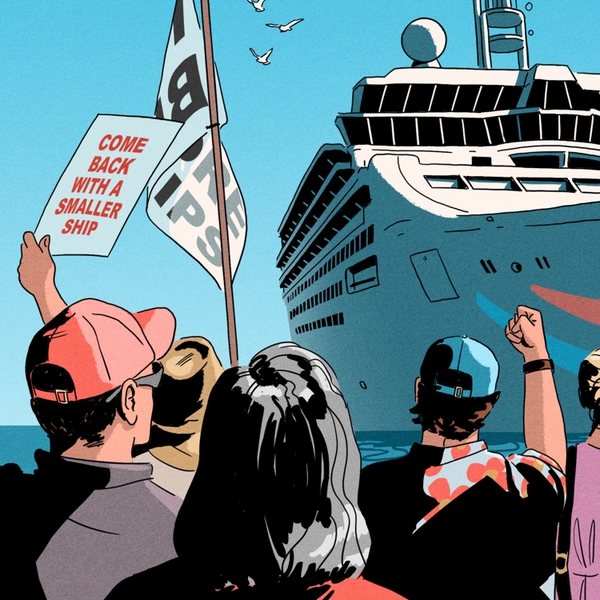
Key West Doesn’t Want Your Big Cruise Ships
Mega cruise ships stopped sailing to Key West, Florida, during the height of COVID-19. Many locals appreciated the resulting peace and quiet and won a vote for large ships not to return. But the fight’s not over.
Heading out the door? Read this article on the Outside app available now on iOS devices for members! >","name":"in-content-cta","type":"link"}}'>Download the app .
Two years ago, when the pandemic hit and the world went into lockdown, the cruise industry was devastated by COVID-19 outbreaks, as some ships were stranded for weeks offshore with sick passengers. Almost overnight, the industry, with millions of workers and customers, was shut down, the boats dropping off the face of the earth like a cartoon schooner sailing over the edge of the planet. For the first time in a generation, many ports of call woke up and discovered they had suddenly been thrust back into a time most residents had never known—era BCS: Before Cruise Ships.
Without this primary source of tourism income, some port communities suffered, with layoffs rippling through economies dependent on the dockings. One study estimated that ports in Florida lost more than $22 billion in 2020, thanks to COVID interruptions and the Centers for Disease Control and Prevention’s ban on cruise ships. But in some places, like Key West, that ban allowed locals to envision a future without the industry dominating tourism.
“It was a stroke of luck,” says Key West mayor Teri Johnston, of the CDC’s original no-sail order . “It gave our residents a chance to see what Key West would look like without the disembarkations—sometimes 10,000 people a day. We’ve never seen cleaner waters, cleaner skies, and our overnight visitors have had the rare opportunity to take a leisurely walk down the street.”
Liking what they saw, some Key West residents attempted to make the reprieve permanent. In November 2020, they voted on and decisively passed three landmark measures limiting cruise-ship traffic to just the smallest ships and those with the cleanest environmental records. (Two of the measures were approved by over 60 percent of voters and the other by more than 80 percent.) Less than a year later, the Italian government followed suit, formally banning large cruise ships from entering Venice’s fragile lagoon, declaring the area in front of the iconic St. Mark’s Square a national monument. In September 2021, French Polynesia also zeroed in on the industry, announcing that cruise ships carrying more than 3,500 passengers would no longer be allowed at its ports of call, including those in Bora Bora and Tahiti, which relied on cruise ships for more than a third of its visitors.
Even today, as the cruise industry ramps up to full steam ahead, efforts to ban the mega ships continue. Overtourism is once again a top-of-mind concern in destinations around the globe, and the ships are an easy target for curbing visitor numbers.
Yet while a few countries and islands have been able to limit cruise ships, most have not. Even in Key West, a return to the BCS era was short-lived. That’s because, in June 2021 , state governor Ron DeSantis signed a bill with a controversial amendment that effectively overturned the city’s voter-approved measures. The legislation, a general-transportation bill , was amended at the last minute by the Florida legislature to include a provision preventing ballot initiatives from regulating commerce in ports, rendering the will of Key West voters moot. Endeavors to ban cruise ships to the island have been a heated political battle, marred by lawsuits, threats of more lawsuits, personal insults, and controversial actions that have led all the way up to the Florida governor’s office.
Indeed, the never-ending drama in Key West—a proudly rebellious island that seceded (for a few minutes) from the U.S. in the 1980s—perhaps best exemplifies the global reevaluation of the cruise industry, one that could shape the future of tourism. But as the fight there demonstrates, corralling the cruise industry is like trying to subdue a hundred-pound tarpon on light tackle: once you hook it, you’re never really in control.
“What options are we left with if the cruise industry won’t listen to our concerns and the Florida politicians simply overrule our demands?” says captain Will Benson, a fishing guide in the Keys who helped campaign for the measures to limit big cruise ships on the November 2020 ballot. “Maybe the only recourse we have left is to pull off some pirate shit, secede from the U.S. again, and become a real Conch Republic this time.”
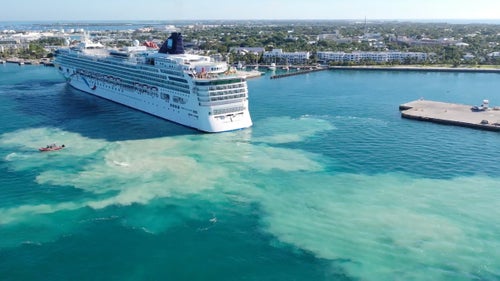
Most people tend to fit into two divisive camps when it comes to cruise ships: you either like the community-at-sea aspect of the big vessels, or you wouldn’t set foot on what some consider floating petri dishes if your life depended on it. However you view them, it’s worth pointing out that it’s a massive business—or was pre-COVID—one that raked in as much as $46.6 billion per year . Nearly 30 million passengers boarded such ships in 2019, the last normal year for the industry; of those, almost 12 million set sail in the Caribbean, with Key West a popular port of call in the larger region. It’s easy to understand why.
Key West’s Old Town, which comprises a third of the four-square-mile island, is one of the nation’s most remarkable historic districts. The entire area is preserved under the National Register of Historic Places due to its unique, mostly wooden structures. The waters surrounding the island are impossibly blue, full of tarpon and manatees, and have captivated visitors with irresistible legends—pirates marauding merchant ships, Hemingway landing thousand-pound marlin, rum runners racing from Havana with a new supply of hooch during Prohibition. It’s home to one of the most stunning sections of the third-largest barrier reef in the world.
In America, very few small towns are as dynamic, and no others boast its Caribbean flair. Key West’s three cruise terminals allow passengers to pour off the gangway directly into the historic district, where it’s a short walk to the bars on Duval Street and an equally short stumble back onto a departing ship. Shore excursions, as they’re called in cruising parlance, include everything from bike tours to bar sessions at Capt. Tony’s, a legendary saloon (formerly called Sloppy Joe’s) where Hemingway drowned his sorrows.
“They’ve built these monster ships that are just too big,” says Will Benson, a local fishing guide. “It’s volume tourism at its worst.”
When a ship pulls into port, Old Town transforms into an island version of New Orleans’s Bourbon Street. It’s swarmed with visitors, sometimes more than 10,000 over the course of a few hours when several ships are docking—and this in a community of just 26,000 permanent residents.
“You can’t move on the streets of the city when we have three cruise ships here,” says Mayor Johnston. “No local or return visitor is heading into Old Town at that point. They know better.”
When I visited the island in March of 2021, cruise ships were still awaiting the CDC’s approval to set sail. It was the height of Florida’s spring-break season, and Miami Beach, crushed under the weight of college students desperate to party after a year of pandemic restrictions, had taken the extraordinary step of curbing the throngs by imposing a nightly curfew . Key West, 130 miles south, was experiencing its own tourist boom—room-occupancy rates were returning to 2019 numbers and sales-tax levies were as strong as ever. Mallory Square, its main pedestrian zone, was still jumping with tourists sipping rum drinks from the to-go bar at El Meson de Pepe. But the island without the cruise ships felt, well, manageable.
Arlo Haskell, a lifelong local who is the executive director of the Key West Literary Seminar and a primary spokesman for Safer, Cleaner Ships —the nonprofit that helped get the 2020 measures on the ballot—walked with me along the waterfront from Jimmy Buffet’s “secret” recording studio to the cruise piers. As we passed the old Custom House, now the Key West Museum of Art and History, Haskell pointed out how, on days when a big cruise ship docks at the island, the floating city dwarfs the brick building, completed in 1891.
“You can tell a ship is here just by looking up,” he said. “Even first-time tourists who are staying overnight know not to head down to the waterfront on those days.”
Haskell and I wandered through Mallory Square, where a nightly mini festival springs up around sunset, filled with fire eaters, caricature artists, and sword swallowers entertaining the out-of-town crowds. Tourists flock to see the sunset, which locals call the best in the world, thanks to the island’s consistently clear skies and the way the orange globe happens to settle directly over the confluence of the Gulf of Mexico and Atlantic Ocean, with sunbeams shooting up from the water like some Bob Ross painting.
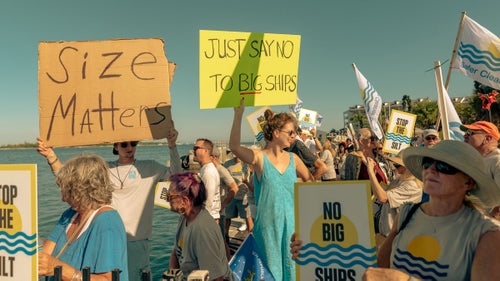
At the time of our stroll, the Florida legislature had yet to unravel Key West’s cruise-ship measures. Without the ships, the water quality had improved around the Florida Keys National Marine Sanctuary, according to a study by Florida International University . Onshore, there was a similar effect. The town had become quietly comfortable, even though overnight tourism had picked up significantly, with Key West registering the highest hotel occupancy rate in the entire country that March . It collected almost the same amount in sales tax in the last quarter of 2020, mid-pandemic, than it did during the same period in 2019; this was attributed to the fact that Americans were still looking for a sunny island getaway, and cruise tourism accounted for under 10 percent of overall tourism spending there, according to studies . Almost two full years without the big ships clearly showed that Key West could survive—even thrive—without those passengers.
On the other hand, Cruise Lines International Association (CLIA), the industry’s most prominent trade group, points to research demonstrating that cruise-visitor spending supports roughly 1 in 20 jobs in town. “Cruising is an integral part of sustainable tourism,” the association stated in an email to Outside , “with cruise lines partnering with many communities to balance the needs of communities and environmental commitments and practices, while contributing to the visitor experience and the local economy.”
Other destinations that have studied the impact of cruise-ship tourism during the pandemic, however, have been less than impressed with the ships’ impact on the local economy. Cruise tourism in Victoria, British Columbia, for example, constituted nearly 12 percent of the total number of visitors in 2019, but those tourists accounted for less than 2 percent of spending in the region, according to a study by Responsible Travel Consulting.
“As a tourist destination, we don’t need the big ships to thrive,” Haskell told me. At the time, he was buoyant, if still bracing for the fight ahead. Yet when I caught up with him a few months after DeSantis had signed the transportation bill and the first large cruise ships had returned to Key West, his outlook had soured. To curb cruise traffic, the Key West City Commission had toyed with the idea of severely limiting ships at Pier B , the island’s private cruise terminal, a move that would have almost certainly inspired a lengthy legal battle.
Instead, the city commission began negotiating a resolution with Pier B and its owner, Mark Walsh, who is also the vice president of Ocean Properties Hotels and Resorts, one of the largest privately owned hotel-management and development firms in North America, with multiple properties across Florida. The commission voted down a proposal to change Pier B’s operating agreement in April 2022, sending everyone back to the drawing board.
The only tangible movement, aside from the big ships rumbling back into port, was a vote by the Key West City Commission to close the two city-controlled docks , Mallory and Outer Mole piers, to nearly all cruise ships. These docks can now only be used if there’s not another ship scheduled to dock at Pier B, and ships docking at them need to be under a 1,300-person capacity.
It was a small victory for Safer, Cleaner Ships, but not a satisfactory one. The majority of ships have always docked at Pier B. The city is back to square one in its negotiations with Pier B, with no end in sight.
“It was a limited victory,” Haskell said of the commission’s vote. “It doesn’t change the bottom line, which is that there was an election with a very decisive result, and that result was totally overturned. What we’ve achieved is two-thirds of what the voters asked for, but we want 100 percent.”
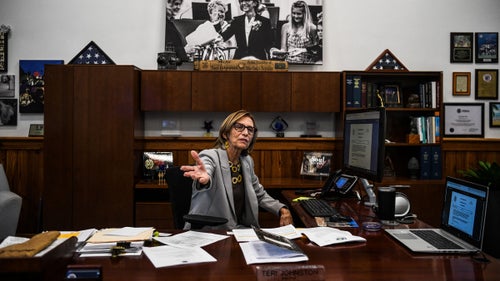
Before the pandemic paused nearly all travel in the spring of 2020, overtourism was one of the trendiest words in the travel industry. Destinations from Majorca to Amsterdam to Angkor Wat were grappling with too many people. Solutions ranged from charging dramatically higher visa fees to limiting the number of Airbnb rental properties. Some locations were forced to take drastic measures to protect specific areas. In Iceland, the country shut down access to a stunning remote canyon because Justin Bieber filmed a music video in it and Beliebers were flocking there in droves, trampling the sensitive environment.
“It’s a natural wonder that wasn’t meant to be that popular,” the director of Iceland’s national tourism agency, Inga Hlin Palsdottir, said to CNN at the time .
Local disgust with tourists dates as far back as the creation of the road, but much of the recent antipathy toward travelers isn’t the result of poor individual behaviors but their collective impact. Certain lands, cities, and streets simply cannot handle excess crowds, no matter how carefully out-of-towners treat the environs. When you add a few thousand ship passengers to the mix, it’s easy to see why so much ire is directed at the cruise industry.
“Being a tourist destination is like being on a pendulum,” says Mayor Johnston. “We’re constantly balancing our quality of life, our fragile environment, and the economic impact that tourism has on us, and the big cruise ships throw everything out of whack.”
Critics of the industry say the ships have gotten too big and are docking too frequently, with a diminishing financial return for locals. Today’s mega cruise ships, as they are called, are about three times the size of those in the 1990s and now hold thousands of people. The world’s largest, Royal Caribbean’s Wonder of the Seas , can accommodate up to 6,988 passengers and is staffed with 2,300 crew members.
Some big ships have been notorious for their environmental issues , from runaway emissions to “waste discharge,” a euphemism for dumping sewage, bilge water, and solid waste into the ocean. Princess Cruises, owned by the Carnival Corporation, was fined $40 million in 2017, after pleading guilty to felony charges that arose from its deliberate dumping of oil-contaminated waste into the water, then covering it up. In January of this year, the company pleaded guilty to violating its probation for the second time since 2019.
“This was a serious and ongoing violation of probation that reflected Carnival’s failure to prioritize compliance with court orders,” assistant attorney general Todd Kim of the Justice Department’s Environment and Natural Resources Division said in a press release . Princess Cruises, in an email statement to Outside, said in part: “While the company’s probationary period has ended, our commitment to compliance and environmental protection is stronger than ever with the many actions put into place across our fleet.”
To be fair, there are a wide array of cruises, from environmentally focused small ships carefully patrolling Antarctic waters in search of wildlife to huge booze cruises with nightly themed parties. While many cruise lines have bad track records with the environment and the cities they visit, smaller ships, generally speaking, cause less of an impact. Meanwhile, a CLIA spokesperson pointed out that the industry has committed to pursue net-zero carbon cruising by 2050.
Still, smaller is not the trend in the industry. Many major cruise lines have recently christened a series of bigger ships whose billion-dollar price tags will take decades to pay off, so they’re pushing hard to get back to business as usual. As these vessels get larger, so too do the accompanying logistical headaches—and not just for sensitive environmental areas, but for the cities that host the behemoths.
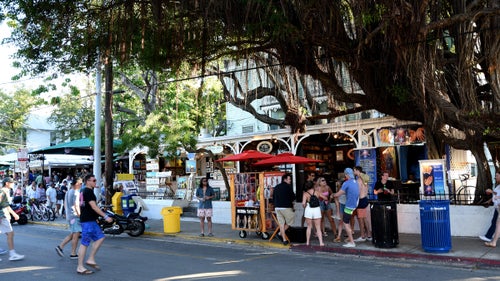
Many ports, like Nassau in the Bahamas and Saint John’s in Antigua , have been forced to dredge deeper channels to handle the ever-increasing ship sizes—a fate Key West has fought against and so far avoided. According to a 2019 study , a deep-dredge project in Miami that would allow the world’s largest container vessels to dock there killed at least a half million corals in the port. Disney Cruise Lines, which has a private island in the Bahamas for passenger excursions, is in the process of building another outing spot on Lighthouse Point , on Eleuthera Island. The project is estimated to cost between $250 and $400 million, including the construction of a pier over a half-mile of coral reefs and sensitive seagrass beds that could possibly degrade the area permanently according to critics .
Disney Cruise Lines refutes this claim, stating in an email to Outside that the company spent more than three years developing environmental-impact assessments that yielded a pier location intended to avoid coral-inhabited areas. “The project includes the construction of an innovative, open-trestle pier that extends to deep water to prevent the dredging of a ship channel,” a Disney spokesperson also said.
All of these efforts are just to tie a ship up to the dock. Once passengers flood off a gangway, a destination needs to be able to handle the influx, which means retooling tourist businesses around such surges, which often last only a few hours. So instead of prioritizing hotels and daylong hikes, fishing trips, or an evening event, ports of call suddenly find themselves ready with T-shirt shops, quick-drink bars and restaurants, two-hour whale-watching trips, 60-minute tours on personal watercraft, and rows of hawkers selling cheap souvenirs. Many of these businesses pay a commission to cruise lines, if they want the ships to send passengers to them.
In Key West, the cruises coming into port are generally big ships. In 2019, the average one docking at the island carried more than 3,000 people—a high-volume, budget cruise.
“They’ve built these monster ships that are just too big,” says Will Benson, the local fishing guide. “The companies have to force themselves on our community and tourism partners, because you’ve got to have something for these people to do, even if it’s just a cheap ride around town. It’s volume tourism at its worst.”
Benson, who grew up in the Keys, says that during the industry pause the flats fishing directly off Key West was better than it had been in a decade or two. Without cruise ships mucking up the channel, he says, the water was cleaner. “You’ve got a small channel and some massive boats that are coming through every single day, stirring up the bottom and dumping a lot of people onto Key West,” he says.
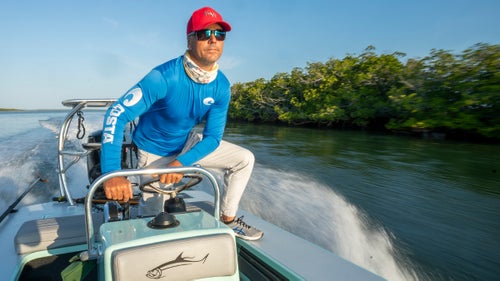
Perhaps no destination embodies the imbalance—and economic clout—cruise ships bring to a city more than Juneau, Alaska, a city of 32,000 that accommodated 1.23 million cruise passengers in 2019 . Roughly three or four times a day, a cruise ship docks and passengers rush off to see the area as fast as they can. When that happens, it becomes dangerous to paddle in the waters around the port, because boats, ferrying guests to see migrating whales, throw out wakes in every direction.
The regular onslaught of cruise passengers creates several other headaches for locals. One popular shore activity for cruise passengers is a helicopter ride to nearby Tongass National Forest, where they can walk on a glacier. The aircraft create a roar above the landscape. In the Juneau Empire earlier this year, one resident wrote that “the pictures on the wall are never straight from the vibration.”
For locals, it’s a double-edged sword. They rely on the money brought in by the passengers to keep their businesses afloat, but the inundation of visitors for a few hours each day can make tourism seem like any other extractive industry.
“It’s like if you invite five people over to your house,” says Karla Hart, a Juneau resident who recently helped found the Global Cruise Activist Network, an international group of anti-cruise advocates. “You can have a quality visit with those five people. Twenty people, and you might have a good party. But the cruise industry is basically someone putting up fliers and then charging 1,000 people to walk right into your home, and you don’t have any control over it. No one likes that.”
For more than a year, Hart and other locals have attempted to add a ballot measure to the city’s elections that would limit cruise ships docking in the city, a measure much like the one passed in Key West. The group wasn’t able to gather enough signatures, however, in part due to a campaign organized and funded by city business owners, including Laura Martinson , owner of the gift shop Caribou Crossing and cochair of the pro-cruise-ship group Protect Juneau’s Future.
“We’ve been defending our existence as local business owners and tourism [operators],” Martinson told radio station KTOO in April . “What I’m hoping comes out of this, on the other side, is a little bit more community education on what our [tourism] industry actually does bring to the community and how valuable our industry is.”
In Juneau, as opposed to Key West, perhaps it should come as no surprise that the ballot measures failed: its economy is already too dependent on cruise ships, and any attempt to prevent them from coming into port could hit the Alaskan city hard. During the pandemic, for example, Serene Hutchinson, who manages Juneau Tours and Whale Watch—which caters primarily to cruise passengers—did everything within her power to keep the business afloat after she had to refund hundreds of thousands of dollars to clients in 2020. Pre-COVID, she had a staff of roughly 90 people, 14 of whom were year-round employees.
“In March of 2020, I had to lay everybody off,” Hutchinson says. “I even had to lay myself off, and I went and worked at the hospital.”
Plenty of other Juneau businesses have similar stories, a result of the local economic dependence on cruise-ship traffic. Any attempt to curb the industry now will affect too many people, even if the very same people profiting from it don’t always like what the city has turned into. The cruise industry in Juneau, in other words, has become too big to fail.
“The industry depends on the goodwill of the local communities for their guests to have a good time,” says Hart. “But if the industry takes away all of our legal ways of doing something about overcrowding, we as community members can simply let their passengers know that they are not welcome here anymore.”
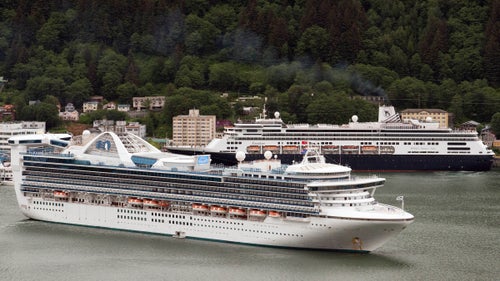
Key West, like many destinations, realizes that it’s at the mercy of tourism dollars. Most locals have jobs connected to the tourism industry and need the constant hustle around town to make ends meet. “We don’t sponge in the ocean anymore. We don’t roll cigars. We provide tourism,” says Steven Nekhaila, a local restaurant owner who’s running for a spot on the city commission this summer to add more business-friendly perspectives to the council. “That’s how people get their dollars down here.”
But even the business community couldn’t reach a complete consensus on the cruise-ship referendum. Nekhaila says it got so heated at times that cruise-ship supporters were reluctant to express their position. “Most business owners were afraid to speak up,” he says. “People were afraid that they were going to be boycotted, or they were afraid of the online mob, because it was, quite frankly, a very angry group, and they had numbers.”
Not all resident business owners were pro-cruise, though. This included Arlo Haskell’s brother, Evan, who is the president of Safer, Cleaner Ships and runs a bicycle shop that rents primarily to tourists, and Benson, the fishing guide, who relies on clients from all over the world to chase tarpon and permit with him on the flats. (Benson’s brother, Jolly, the vice president of Safer, Cleaner Ships, doesn’t rely directly on tourist dollars; he’s an electric contractor in the Keys.)
The two sets of brothers grew up on the Keys together and were part of the driving force behind getting the ballot measure to limit cruises approved. They’re lifelong Conchs, as the native islanders call themselves, and yet that didn’t stop critics of the cruise-ship measures from attacking them and other advocates as wealthy landowners trying to turn Key West into a rich person’s private playground. When I met Will Benson at his home, he’d just returned from taking his wife and kids out onto the flats for the day. He scoffed at the characterization.
“It got dirty, and it got personal,” he told me. “But the locals know us, and we’re an insular island. We protect each other.”
The November 2020 election was rife with controversy, in large part because of a campaign launched by a nonprofit called Protect Our Jobs, Inc., which sent fliers to the doors of Key West voters claiming that the cruise-ship measures would raise property taxes (they didn’t) and that they would defund the police. One headline blared: “There’s a sound downstairs… Will anyone respond to your call? Drastic budget cuts will result in fewer police on the streets. This is what may happen if the cruise ship charter amendments pass.”
“Most voters saw right through the scare tactics,” says Benson. “They were trying to muddy the waters, and it backfired on them.”
After the measures passed, the Miami Herald reported that the cruise industry was affiliated with the misleading mailers . Protect Our Jobs was funded, at least in part, by a Florida political action committee, with lobbyists listed as its corporate officers . Much of the funding behind that PAC, Florida Cruise PC, originated with corporations or organizations affiliated with the cruise industry. For example, $100,000 can be traced back to an address used by the headquarters of the Royal Caribbean Group, one of the world’s largest cruise companies, which is based in Miami but incorporated in Liberia.
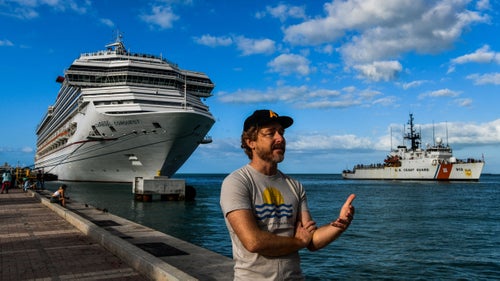
In an email to Royal Caribbean asking about the funding, a spokesperson sent this statement to Outside , saying that Key West “ranks among their most popular ports” and that in order to “best understand local concerns, and in keeping with our philosophy of continuous improvement, we keep all doors open to engage community stakeholders in conversations that lead to positive outcomes.”
Even the legislative process that led to the final transportation bill that DeSantis signed in June 2021 was mired by controversy. As the bill was making its way through the legislature, the amendment was attached to it at the last minute . Safer, Cleaner Ships, for a time, had hoped that DeSantis would veto the entire bill due to the divisive add-on, but he signed it into law in July. It later emerged in the Miami Herald that the bill passed just four months after the PAC supporting him, Friends of Ron DeSantis, received nearly $1 million in donations from companies owned by Mark Walsh , the operator of Pier B. During the course of four days, between February 28 and March 3, Walsh’s companies made 11 donations to the PAC, according to public campaign-contribution records.
Walsh, in an email comment to Outside , said the companies’ “political contributions were decided prior to legislation and we are glad that legislators and Governor DeSantis support tourism in Florida.” DeSantis didn’t return Outside ’s request for comment.
It’s no surprise that Pier B and Walsh are reluctant to let Key West limit cruise-ship operations. For every passenger that disembarks on the dock, cruise companies pay the local pier what’s called a head tax, or dockage fee, which can add up to millions each year. The cruise-industry trade association says that cruise lines spent over $15 million in fees in Key West, according to a 2020 report produced for the association .
Cruise companies cite these fees—in addition, of course, to the dollars that passengers spend in ports—as their way of injecting money into the communities they visit. But by law, at least in Key West, those fees can only be used to pay for services and improvements directly related to the cruise ships, like repairs to the port facility and hiring extra police to patrol when a vessel docks. After associated costs to accommodate the ships, these fees provide less than at first glance. An independent report commissioned by the city in 2018 found that, after expenses, Key West’s public ports operated at a net loss.
Other vested interests in the cruise ships include the Florida Harbor Pilots Association, which represents captains who bring the ship into port and earn a commission for each boat. The harbor pilots, along with others, were lobbying in Tallahassee as the Florida legislative session wore on in the spring of 2021.
In many ways, the cruise-ship fight is reminiscent of a similar controversy in 2019, when Key West voted to ban the local sale of sunscreens containing oxybenzone or octinoxate, chemicals that damage the fragile coral reefs surrounding the island. (Hawaii instituted a similar ban in 2018 .) The Florida legislature voted to overturn the Key West ban by passing a law that would prevent local governments from regulating any over-the-counter drugs or cosmetics.
“We have people dictating policy in Key West from northern Florida, which just seems asinine to me,” says Mayor Johnston. “We’re trying to be a place where you raise children and have families. We’re a community first and a tourist destination second, and Tallahassee seems to have lost sight of that.”
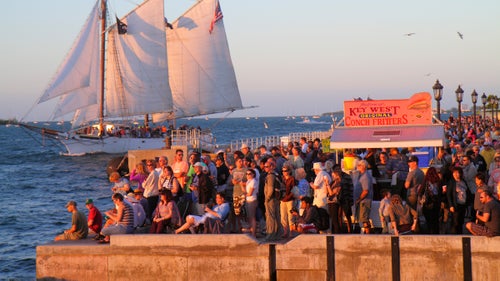
In November, when the Crystal Serenity docked at Pier B, a dozen or so cruise-ship supporters welcomed guests with signs emblazoned with things like “Welcome back to Key West. We’ve missed you.”
“Today’s pretty monumental for us,” D.J. Halligan, whose family owns the Tropical Vibes Ice Cream shop, told WRLN , the main public radio station for South Florida, as the ship came in. “We have a shot at saving our business now.”
Two weeks later, around 300 locals joined together to protest the arrival of another cruise ship, Norwegian Dawn , a 965-foot, 3,300-person vessel owned by Norwegian Cruise Lines. As Arlo Haskell addressed the onshore crowd over a speaker system, Will Benson directed a flotilla of 45 boats sporting Safer, Cleaner Ships flags. A drone in the sky captured images of the ship coming into port. As the boat approached, it kicked up a trail of sediment adjacent to the Florida Keys National Marine Sanctuary. Looking at the footage feels like watching a slow-motion video of gallons and gallons of chocolate milk being poured into a swimming pool, with brown clouds swelling slowly into the surrounding water.
“Nobody can watch one of those videos and say to themself, ‘Sure, this is OK,’” says Benson. “It’s just undeniable. You can see this silt trail from outer space. It’s even worse than we knew it was at the beginning of all this, and we’ve documented it.”
In an email to Outside , Walsh refuted the claim that silt from cruise ships damages the coral, citing a letter from a noted researcher working on behalf of the consulting firm Dial Cordy and Associates Inc . stating that while “it is true that sediment disturbance, as evidenced by the turbid plumes you see generated from cruise ships are unsightly, these plumes cause no measurable harm to coral.”
Since this spring, roughly three cruise ships a week have docked in Key West. Critics watch each docking with a careful eye, documenting various infractions, like bringing in ships so big that they’re unable to keep to the very tight underwater-area restrictions kept in place by the city and the Navy, which has an adjoining port.
“The community is ready to move on,” says Benson. But the issue of cruise ships in Key West is still unsettled.
With fewer boats arriving than in 2019, the downtown crowds have been kept to a minimum—and the economy has mostly thrived. Sales-tax revenues in 2021 were up 25 percent over 2019, which had been a record-setting year. Robert Goltz, executive vice president of the Key West Chamber of Commerce, says this boom can be attributed, at least in part, to the pandemic’s effect on tourism overall. “If you wanted to go to a sunny island, you weren’t going out of the country because of COVID,” he says. “Key West was people’s Caribbean option. If it wasn’t for COVID, it’s my belief that the numbers would be far different, the opposite way.”
Local disgust with tourists dates as far back as the creation of the road, but much of the recent antipathy toward travelers isn’t the result of poor individual behaviors but their collective impact.
Steven Nekhaila believes the same thing, that the influx of tourists and tourist dollars in late 2021 and 2022 was thanks to the fact that Americans were on domestic, rather than international, tropical vacations. In his view, those tourists will soon be headed elsewhere and the city needs to encourage tourism of all kinds, including welcoming cruise passengers.
“I don’t think there is such a thing as too much tourism,” he says. “As long as laws are being respected and people aren’t being disruptive, it should be encouraged, because it allows everybody to live here.”
That’s, of course, not how anti-cruise advocates see it. “The pandemic provided a kind of real-world experiment: What happens to the environment when you take the big ships out? What happens to the economy?” says Haskell. “Most people would have thought, Sure, the environment would get better, but the economy would get worse. And, in fact, they both got better.”
In other words, the past year and a half sans ships has only strengthened the case that Key West would stand to gain more by prioritizing sustainable, overnight tourism, with its higher value per tourist, rather than catering to the large cruise-ship crowd.
“We’re a laid-back community,” says Mayor Johnston, “and that’s the type of experience that we would like to give the people that choose to visit us.”
When I was there last year, when cruise ships were awaiting CDC approval to sail, walking around Key West felt like snagging a private tour of Machu Picchu. The streets were mostly calm, and it lent a completely different vibe to the city. You could stroll around, rather than push through. Shops were happy to welcome you in, rather than hurry you out after buying a $10 trinket. You could enjoy a key lime pie on a stick on a sidewalk and not worry about getting bumped into.
The only nuisance was an endearing one: the constant crowing of feral roosters, which have become something of an island mascot. Their protected status arose in typical Key West fashion. Some of the birds are the descendants of fighting cocks brought by Caribbean-island expatriates in the early 20th century. Key West eventually banned cockfighting, and to prevent the owners from simply killing the roosters (at least according to local legend), the area was declared a no-kill island.
Today the roosters are accepted as a natural part of the ecosystem, despite their early-morning aural assaults. Yet even as a sort of protected species, to combat overpopulation, the island occasionally sends them to the mainland . Whether Key West can do that with its other invasive species remains to be seen.
- Boat Travel
These US port cities are fighting to restrict cruise ships. It's easier said than done.
- The pandemic offered coastal communities across the US a taste of life without cruise ships.
- Now, port cities in Florida, Maine, Alaska, and California are fighting to limit or ban the vessels.
- Monterey, California and Juneau, Alaska are the latest US ports trying to scale back cruise tourism.

The pandemic offered coastal communities across the US a taste of life without cruise ships, one marked by cleaner water , fewer crowds, and lost jobs .
Now, port cities in Alaska, California, Maine, and Florida are fighting to permanently ban or limit the massive vessels dotting their shorelines due to residents' concerns about over-tourism and pollution.
Their initiatives, from every corner of the country's vast shoreline, underscore the challenges towns face as they attempt to reel back cruise tourism: most anchorages and piers used by cruise ships fall under federal jurisdiction, meaning local governments are legally limited in how they can restrict their comings and goings.
Related stories
Monterey, California, a small coastal city two hours south of San Francisco, is the latest US port to push back against the multi-billion dollar cruise industry. In February, its city council voted to terminate passenger landing services provided by the city to visiting ships, claiming they pose environmental risks to Monterey Bay, a national marine sanctuary.
While the move isn't a blanket ban on the vessels, it makes disembarkment a costly and complicated challenge for cruise lines who choose to visit.
A few weeks prior, Juneau, Alaska's city assembly voted to cap the number of cruise ships visiting the capital's downtown port at five per day . While some residents voiced support for more stringent restrictions, assembly member Maria Gladziszewski said anything more would result in "immediate" litigation.
The cruise industry's legal power is a real fear for the city — Juneau was previously sued for charging $8 passenger fees, resulting in a costly three-year lawsuit.
Some business owners argue that cruise bans will have a negative impact on the local economy. Bar Harbor, a small coastal town in Maine that serves as the gateway Acadia National Park, was sued by local businesses this January after the town approved a citizens pe tition to cap disembarking cruise visitors to 1,000 per day .
But how much cruise passengers actually spend upon disembarkment is unclear. According to one study commissioned by Stand.earth, an environmental organization, found that cruise passengers visiting Victoria, a major Canadian cruise port, were responsible for less than 2% of tourism spending.
On the opposite end of the Eastern Seaboard, a similar battle has long been underway. Key West, an island in Florida with approximately 26,000 permanent residents, has been attempting to limit local cruise traffic since 2020, when locals overwhelmingly voted to cap the number of daily cruise ship passengers, ban larger cruise ships, and give preference to cruise lines with the best environmental record.
Despite all three measures being approved by over 60% of voters , the fight didn't end there. In 2021, the Florida state legislature passed a bill ruling that local ballots and referendums cannot be used to restrict maritime commerce, effectively overruling Key West's vote. The next year, city officials passed an ordinance banning cruise ships from Key West's public piers and redirecting ship traffic to a private dock — a measure that soon attracted state scrutiny.
Do you live or work near a US cruise port? Email this reporter at [email protected] to share your story.
Watch: The rise and fall of the cruise industry
- Main content
- Carnival Cruise Line Takes Delivery of Celebration
- Icon of the Seas - Introduction & Big Reveals
- Carnival Reveals The Gateway For New Ship Celebration
- Carnival Cruise Line Grand Bahama Port Breaks Ground
- Carnival Celebration to Feature Miami Themed Zone

Key West Votes To Ban Large Cruise Ships
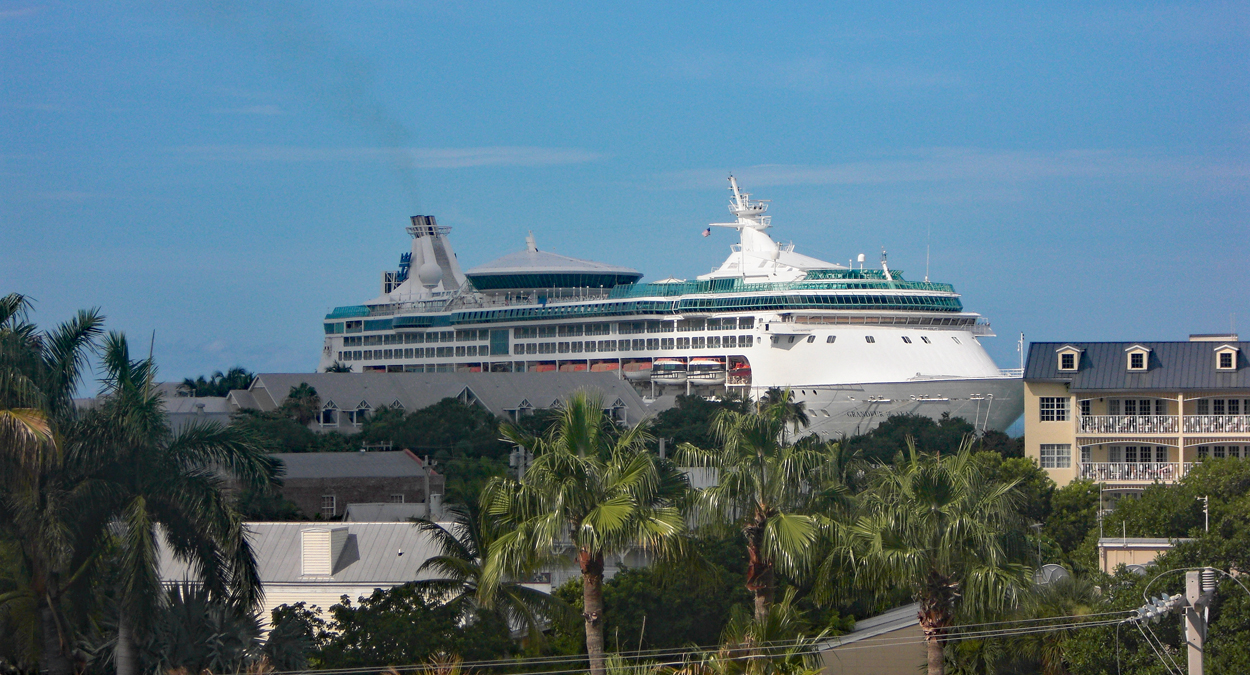
As part of the 2020 national election, residents of Key West, Florida participated in a referendum to vote on the future of cruise ships arriving to the Port of Key West.
The vote resulted in 63.33% favoring limits on the number of disembarking cruise guests to 1,500 per day, while 60.69% voted in favor of prohibiting cruise ships carrying 1,300 guests or more. Additionally, 81.20% voted in favor of giving priority to cruise lines with the best environmental records.
In 2019, Key West saw over 400 cruises ships disembarking just under one million passengers. Despite these large passenger numbers, which accounts for almost half of Key West’s total visitors, cruise passengers only provide 7% of tourist spending. For residents of Key West, they felt the environmental impact was not worth the minimal economic gain.
These restrictions, if challenges from several parties are unsuccessful, will turn the Port of Key West into a niche port of call for a very small selection of cruise ships. Of the 40 or so cruise ships scheduled to arrive in Key West in 2020, less than half would be allowed under the new ship size and passengers limits.
In the end, this move may help Key West balance cruise ship tourism with environmental concerns, while providing more economic impact. Smaller cruise ships tend to attract more affluent passengers that may be willing to pay a premium with possible increased docking fees while also spending more while ashore.
Related Posts
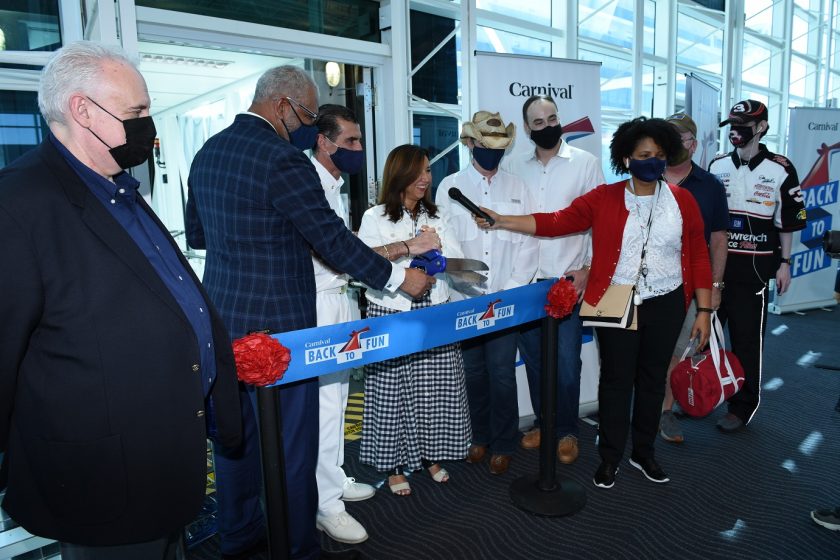
Big Weekend for Return of Cruises From the U.S.
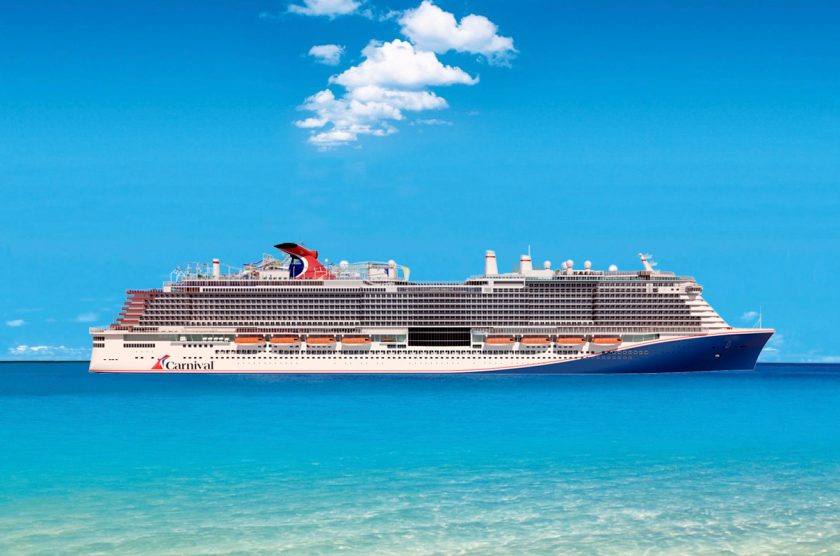
Carnival to Grow Fleet with Two Additional Ships by 2023
Royal Caribbean’s 1st Ship In New Class: Icon of the Seas
Israel-Gaza latest: Israel explains why troops withdrawn from southern Gaza | War latest
Today marks six months since the 7 October attacks by Hamas that left more than 1,100 Israelis dead and prompted Israel's ongoing military operation in Gaza, which has killed more than 33,000 people. We'll be bringing you updates on this throughout the day.
Sunday 7 April 2024 22:58, UK
- Israel-Hamas war
Please use Chrome browser for a more accessible video player
- Israeli military withdraws almost all ground troops from southern Gaza
- Israel's defence minister gives reason for troops withdrawal
- Netanyahu 'desperate' for ceasefire deal
- Today marks six months since the 7 October attacks
- Iranian official says Israeli embassies are no longer safe | Top military commander promises retaliation
- Israel 'absolutely' committed to ground invasion of Rafah
- Podcast: Should the UK stop selling arms to Israel?
- Live reporting by Jess Sharp and (earlier) Josephine Franks
That's all for today, but we'll be back soon with regular updates and analysis.
Until then, you can read through today's updates by scrolling below, or you can read our lead story here .
A Hamas delegation has arrived in Cairo for ceasefire talks, the militant group has said in a statement.
The officials will meet Egyptian intelligence chief Abbas Kamel during their visit, it said.
It also reiterated demands the group issued in a proposal last month prior to a UN Security Council resolution calling for a ceasefire.
The demands include a permanent ceasefire, the withdrawal of Israeli forces from Gaza, a return of displaced civilians, and an exchange of Palestinian prisoners for Israeli hostages being held in Gaza, the statement said.
The statement also demanded relief for the Palestinian people and to begin reconstruction of the besieged region.
A total of 322 aid trucks have been allowed into Gaza today, officials have said.
The Coordination of Government Activities in the Territories (COGAT) said this was the highest number of aid trucks transferred to the region in one day since the conflict erupted last year.
"There is no limit to the amount of aid that can be facilitated for the civilians in Gaza," it added.
It comes as pressure continues to grow on Israel to allow humanitarian assistance into the region, with several international organisations warning famine is immiment.
A grieving father who lost his son when Israeli air strikes killed seven World Central Kitchen aid workers has given a clear message to US Secretary of State Antony Blinken - killings by Israel in Gaza must end.
John Flickinger told Mr Blinken the US needs to use its power and leverage over its closest Middle East ally to make that happen.
Mr Flickinger's 33-year-old son Jacob was among the humanitarian workers killed in the drone strikes earlier this week.
"If the United States threatened to suspend aid to Israel, maybe my son would be alive today," Mr Flickinger told Associated Press.
"I'm hopeful that this is the last straw, that the United States will suspend aid and will take meaningful action to leverage change in the way Israel is conducting this war," he added.
In addition to Jacob Flickinger, three British nationals, an Australian, a Polish national and a Palestinian were killed in the strikes.
Israeli officials have called the drone strikes a mistake, and the military has said it dismissed two officers and reprimanded three others for their roles.
Today marks six months since Hamas launched its 7 October attacks on Israel.
With frustration growing in Israel, deaths rising in Gaza and a humanitarian crisis continuing to grow, many have been calling for a ceasefire deal to be struck.
Around 130 hostages are still believed to be in Gaza - about a quarter of whom Israel says are dead.
Here our Middle East correspondent Alistair Bunkall takes a look at some of the key moments in the conflict so far...
Israel will hold a military exercise tomorrow morning, the country's military has announced.
In a post on X, the Israel Defence Forces says the drill will be held in the northern coastal strip and the Galilee area - a region close to the Lebanon and Syria border.
It adds that the "lively movement of vessels, aircraft and security forces" will be felt in the area and is part of the "IDF's readiness for combat in the various sectors".
"There is no fear of a security incident," it says.
It comes after the military said earlier today that it has completed another phase in preparing for a possible war on its northern front with Lebanon and Syria.
The United States and its allies have dropped humanitarian aid into the isolated northern part of Gaza, where the United Nations and aid groups have warned famine is imminent.
The US Central Command said it dropped the packages alongside the Royal Jordanian Air Force.
It said the delivery will provide "essential relief to civilians in Gaza affected by the ongoing conflict".
"The combined joint operation included Jordanian-provided food and three US Air Force C-130 aircraft," it added.
"The US C-130s dropped over 38,000 meal equivalents, providing life-saving humanitarian assistance in northern Gaza."
To date, the US has dropped 739 tons of humanitarian assistance in the region.
The British armed forces have dropped 40 tonnes of aid into Gaza in recent weeks to tackle the bottleneck in supplies reaching Palestinians.
The five air drops have seen supplies including water, flour and baby formula parachuted into the territory.
Thousands of Israelis have rallied outside the parliament in Jerusalem, calling for a "hostage deal" to be reached.
The demonstration, organised by the families of the hostages, also marks six months to the day since they were captured by Hamas.
The six-month mark has been met with growing frustration in Israel, where anti-government protests have swelled and anger has mounted, with more than 100 hostages still being held in Gaza.
"People are waiting for their children for their parents, for their sisters and their brothers and our government doesn't seem to care," said Talia Ezrahi who attended the protest with her daughter.
Negotiations for a ceasefire in exchange for the release of the hostages have resumed in Cairo today.
Iraq has agreed to send 10 million litres of fuel to Gaza, Prime Minister Mohammed Shia al-Sudani has announced.
Iraq also agreed to accept wounded Palestinians into the country from the besieged region and provide them treatment.
The lack of fuel in the strip has crippled hospitals, water systems, bakeries and relief operations.
Israel imposed a strict blockade on all goods entering Gaza when it launched its military campaign in the region.
Since then, supplies have dwindled and only a fraction of the amount of fuel needed has been allowed in.
By Mark Stone, US correspondent
As we mark six months of the most brutal of conflicts in Gaza, a few thoughts.
First, we're at the end of the most consequential of weeks in this bloody six-month period.
I say it with a great deal of hesitation and perhaps some naivety (given how many moments of hope have come and gone) but maybe there is a little sense of momentum right now.
After the killing of foreign aid workers, it's been a week in which American influence seemed finally to have a humanitarian impact.
After a call between President Biden and Prime Minister Netanyahu, the Israeli government announced it would open Ashdod port for the delivery of aid.
It also said a key northern border crossing to Gaza, Erez, would open.
Then came the announcement that Israeli troops would pull out of southern Gaza, leaving just one battalion inside the strip.
The White House spokesman, John Kirby, says this is a temporary "rest and refit" for the soldiers but also says he doesn't believe it's the prelude to a new offensive.
Some reporting from Israel suggests the IDF might be shifting to targeted anti-terror operations over large ground offensives.
Israeli negotiators have also gone back to the table in Cairo, reportedly with a new mandate for hostage/ceasefire talks. The CIA director, the prime minister of Qatar and the Egyptian spy boss are also there.
Could all this amount to a moment for the guns to fall silent, the hostages to come home and a flood of aid to get in?
Well, many of us have wondered this before over the past six months, and we've been wrong.
My second observation? Well, in all of this, a key piece of the path to peace is still totally absent. Who will have authority in Gaza?
Who governs Gaza? A UN blue beret force? An Arab peacekeeping mission? Palestinian leaders? But which ones?
Six months of war and the 'day after' is, just maybe, getting closer.
But no one has any sense of what it looks like. That represents a profound political and damning failure of American leadership.
Be the first to get Breaking News
Install the Sky News app for free


IMAGES
COMMENTS
People in Key West have long been divided over the cruise ship industry's impact on the small island. Voters put big limits on cruise traffic in 2020 but state lawmakers canceled their wishes.
Key West votes to ban large cruise ships from docking, limit cruise visitors to 1,500 per day. Big cruise ships will no longer welcome at the southernmost point in the continental U.S. On Tuesday ...
Key West Sets Out to Try Again. The Key West cruise ship issue seems to be a neverending story. The locals voted to limit cruise ships visiting the island to carry a maximum of 1300 passengers and ...
Published on November 5, 2020. Residents of Key West in the Florida Keys, have voted to impose new restrictions on cruise ships looking to pull into the four-square-mile island that's home to the ...
Well, the people have spoken—well, voted, rather—and they want to keep out big ships and large cruise crowds. On Nov. 3, 2020, Key West residents found three charter amendments on cruise ship regulations on their ballots. All three amendments were proposed by the Key West Committee for Safer Cleaner Ships. All three would be effective ...
Last Tuesday, Key West voters approved three referenda that will ban most cruise ships by major lines from visiting the city. The first referendum, which won roughly 63% votes according to the Monroe County Board of Elections, prohibits cruise ships with more than 1300 passengers from docking in the Keys. The second, which won 61% votes, places ...
A Disney cruise ship docked in Key West, Florida. In the wake of a referendum on Tuesday, the vessel will be too big to visit the town. (Photo by Ullstein Bild/Getting Images) The referendums passed by wide margins ranging from 60% to 81%. The referendums are binding but are expected to be challenged in court.
It estimates that cruise visitors contribute 7% of the total amount spent by tourists in Key West. "The ban is likely to have a small impact on cruise lines". While this might appear a fairly low figure, it still amounts to $73m from the $1.2bn total revenue from tourism in the area, according to 2018 figures.
A day after the issue appeared dead, Florida lawmakers late Wednesday approved a measure aimed at overturning a 2020 vote by Key West residents restricting cruise ship operations. The Senate ...
The residents of Key West voted on November 3 to approve three proposals that would effectively ban large cruise ships from Key West, and the results of the voting were certified this week by Monroe County Supervisor of Elections R. Joyce Griffin. The voter-approved amendments to the City Charter have now been authenticated by Mayor Teri ...
In "The Impacts of the Cruise Ship Industry on the Quality of Life in Key West," or the Murray report, while cruise ship passengers make up 50% of total visitors to the island, they only spend an ...
But it was an important vote for the cruise industry. Between 60% and 80% of Key West voters said yes to measures that ban cruise ships that carry more than 1,300 people; allow only 1,500 cruise ...
Key West's cruise ship ban is apparently no more. Florida Governor Ron DeSantis (R) signed FL CS/CS/CS/SB 1194 (2021) Transportation Bill, which includes a provision that would not allow local referendums to impact commerce in Florida ports. In November 2020, Key West residents voted to approve a limit on cruise ship traffic to Key West.
Three measures that would essentially ban large cruise ships from docking in Key West that were on the ballot were overwhelmingly approved on Election Day.One measure prohibits ships with more than 1,300 passengers from docking in the Keys, another measure caps daily cruise ship visitors at 1,500, and the third measure gives docking priority to cruise lines with the best environmental and ...
Published April 28, 2021 | Updated April 28, 2021. TALLAHASSEE — A day after citizens of Key West thought the legislation aimed at overturning their vote to limit cruise ship traffic appeared ...
Lawmakers this year embarked on the seaports legislation in response to three voter-approved referendums passed last November in Key West. The measures in part prohibit ships with 1,300 or more ...
Mega cruise ships stopped sailing to Key West, Florida, during the height of COVID-19. Many locals appreciated the resulting peace and quiet and won a vote for the large ships not to return. But ...
Key West, an island in Florida with approximately 26,000 permanent residents, has been attempting to limit local cruise traffic since 2020, when locals overwhelmingly voted to cap the number of ...
The vote resulted in 63.33% favoring limits on the number of disembarking cruise guests to 1,500 per day, while 60.69% voted in favor of prohibiting cruise ships carrying 1,300 guests or more. Additionally, 81.20% voted in favor of giving priority to cruise lines with the best environmental records. In 2019, Key West saw over 400 cruises ships disembarking just under one million passengers.
While 597,000 cruise ship passengers filled Duval Street in 1999, in 2019, 910,000 cruise ship passengers from 417 ships visited the community of 24,000. During the past few months of the pandemic ...
Residents in Key West voted on Tuesday to approve three amendments that would ban most cruise ships from visiting the popular port in Florida. Cruise ships that carry more than 1,300 passengers ...
The West has similarly dismissed suggestions Kyiv was involved and several leaders have accused Russia of using the attack as an excuse to expand its operations in Ukraine. 15:48:01
An Iranian journalist is back on TV just a week after he was stabbed outside his home. Pouria Zeraati, a 36-year-old presenter at London-based broadcaster Iran International, said "the show must ...